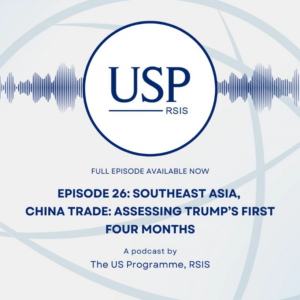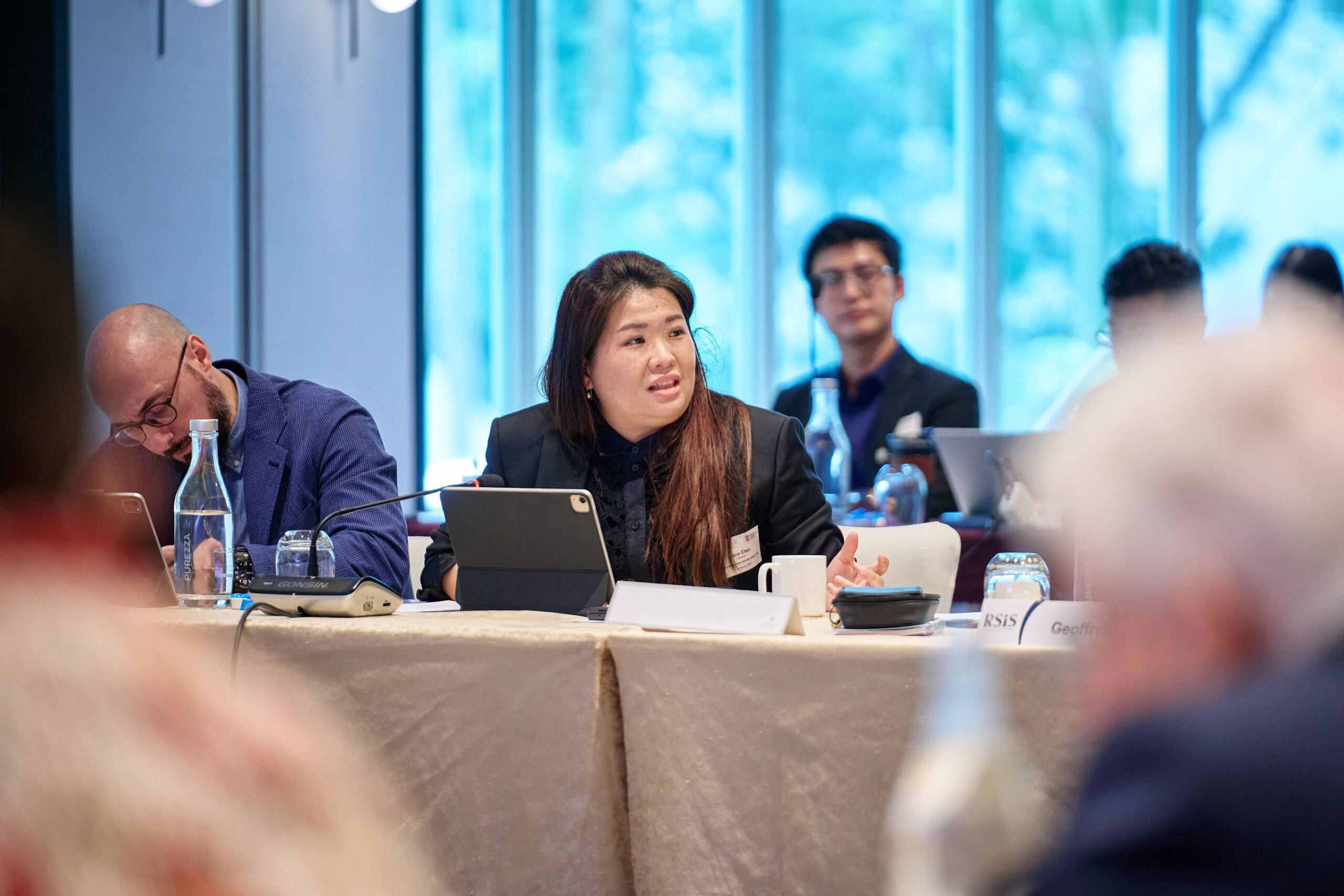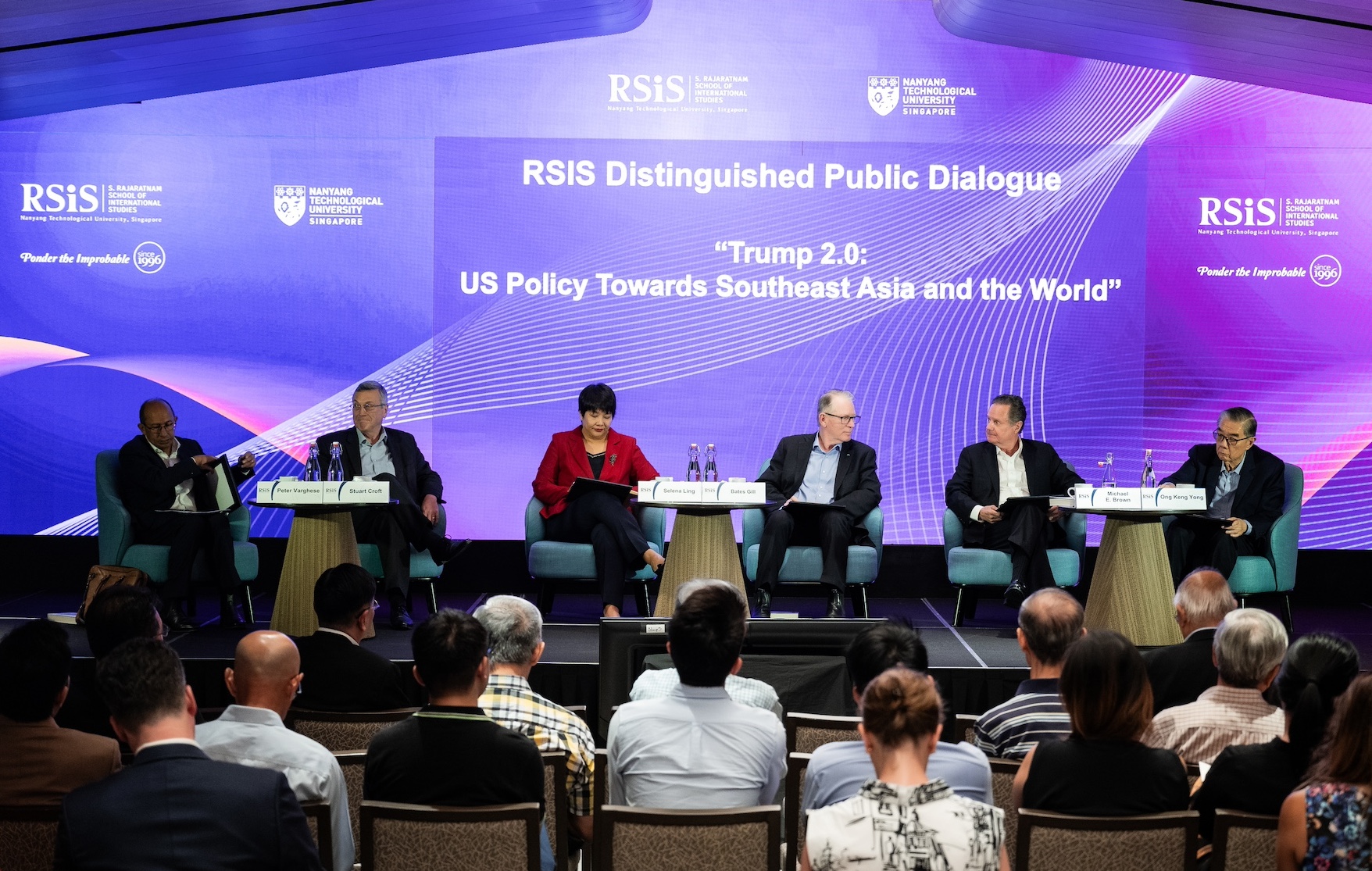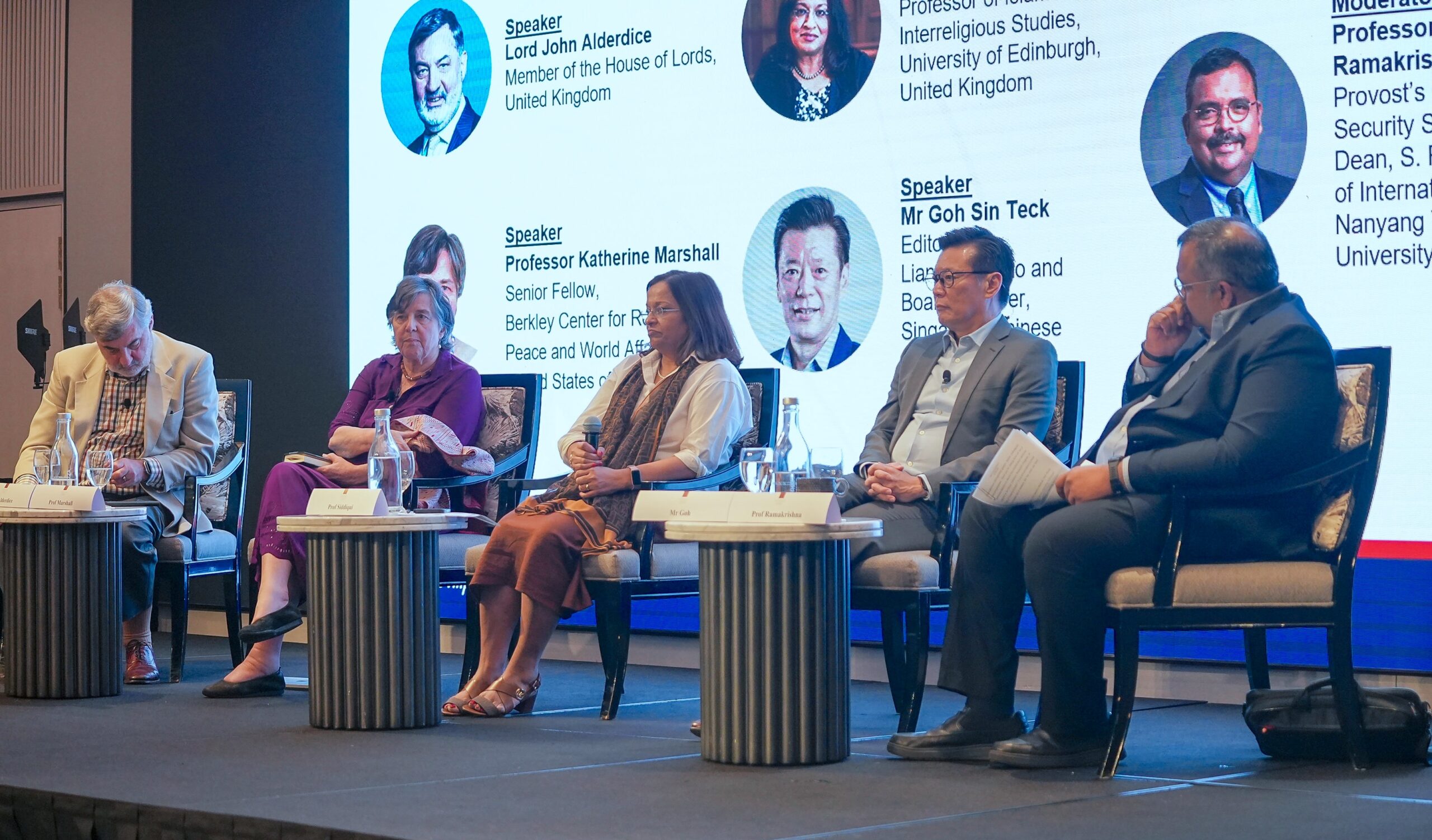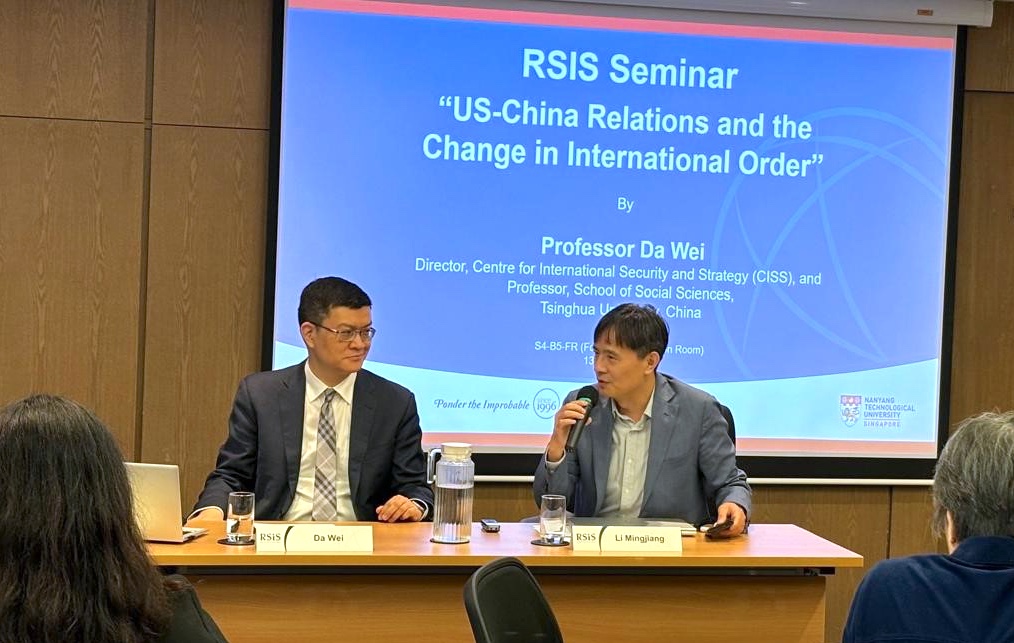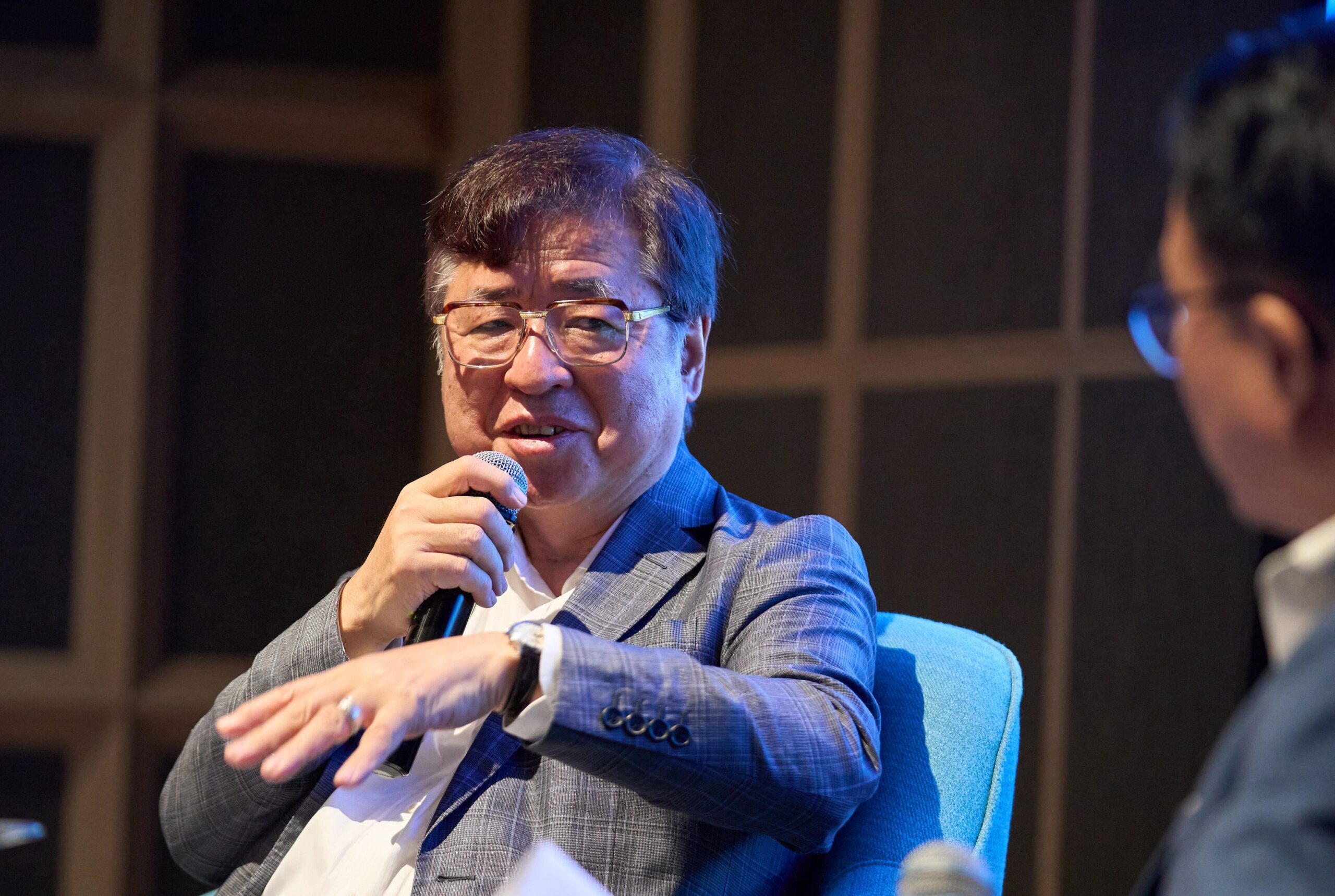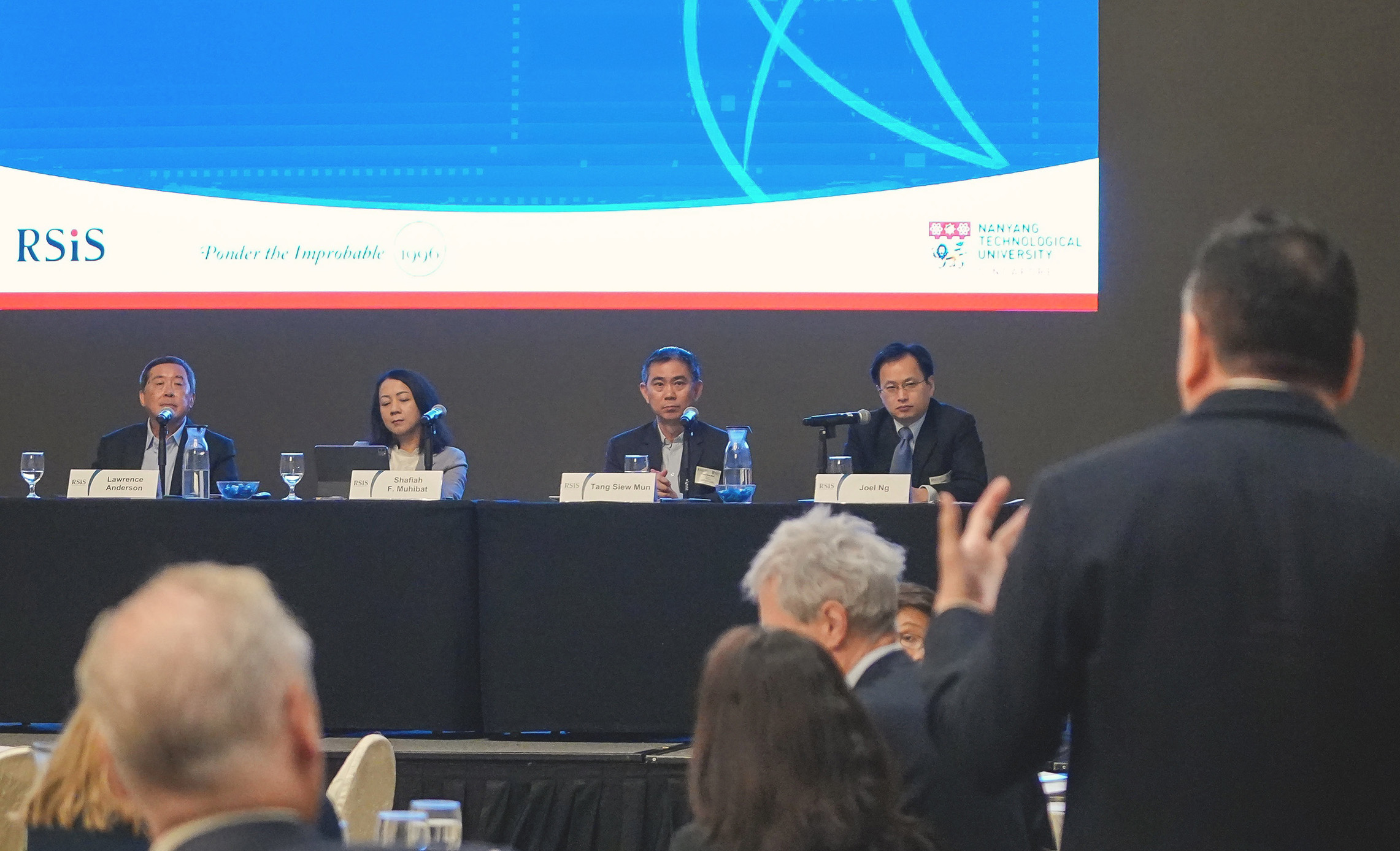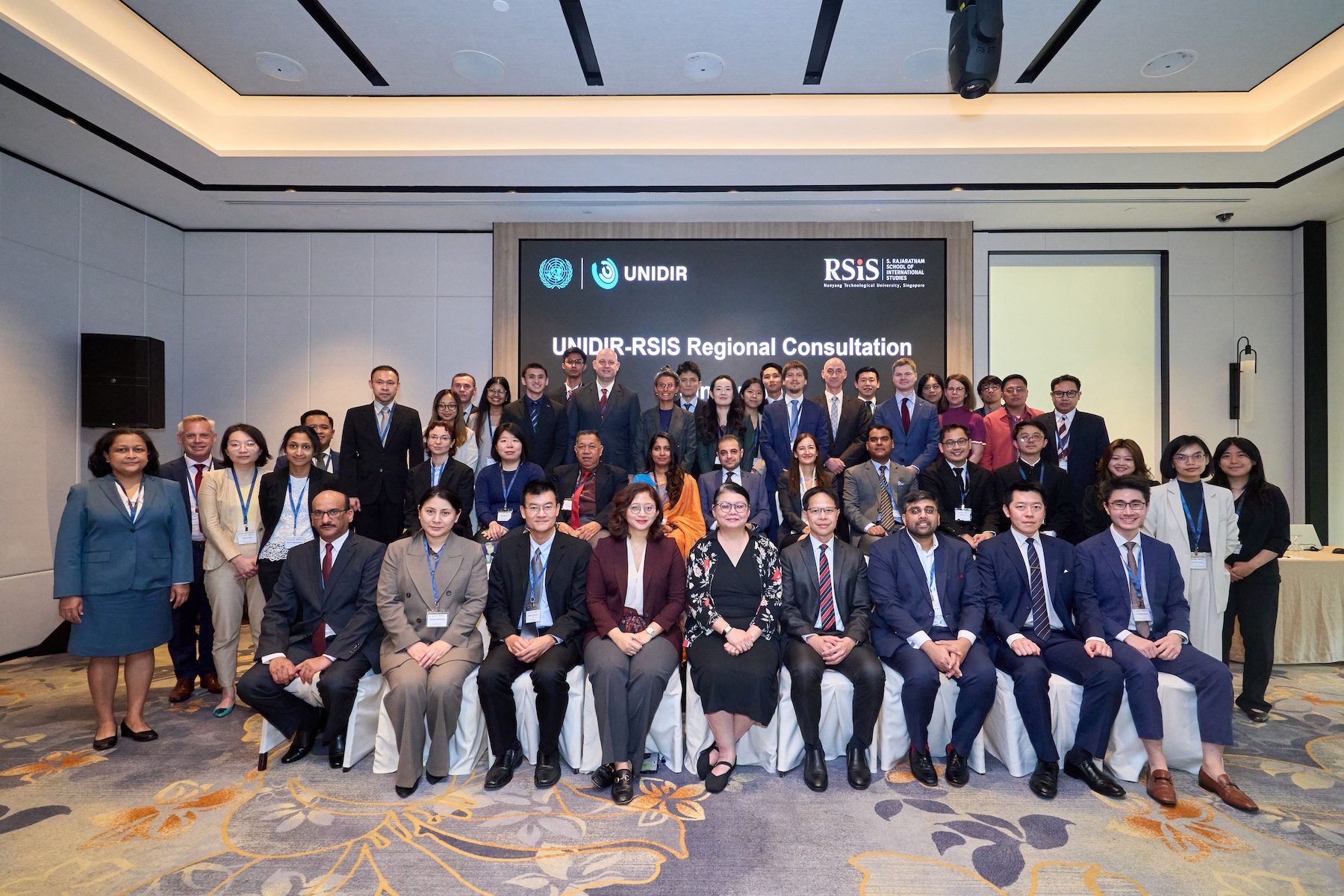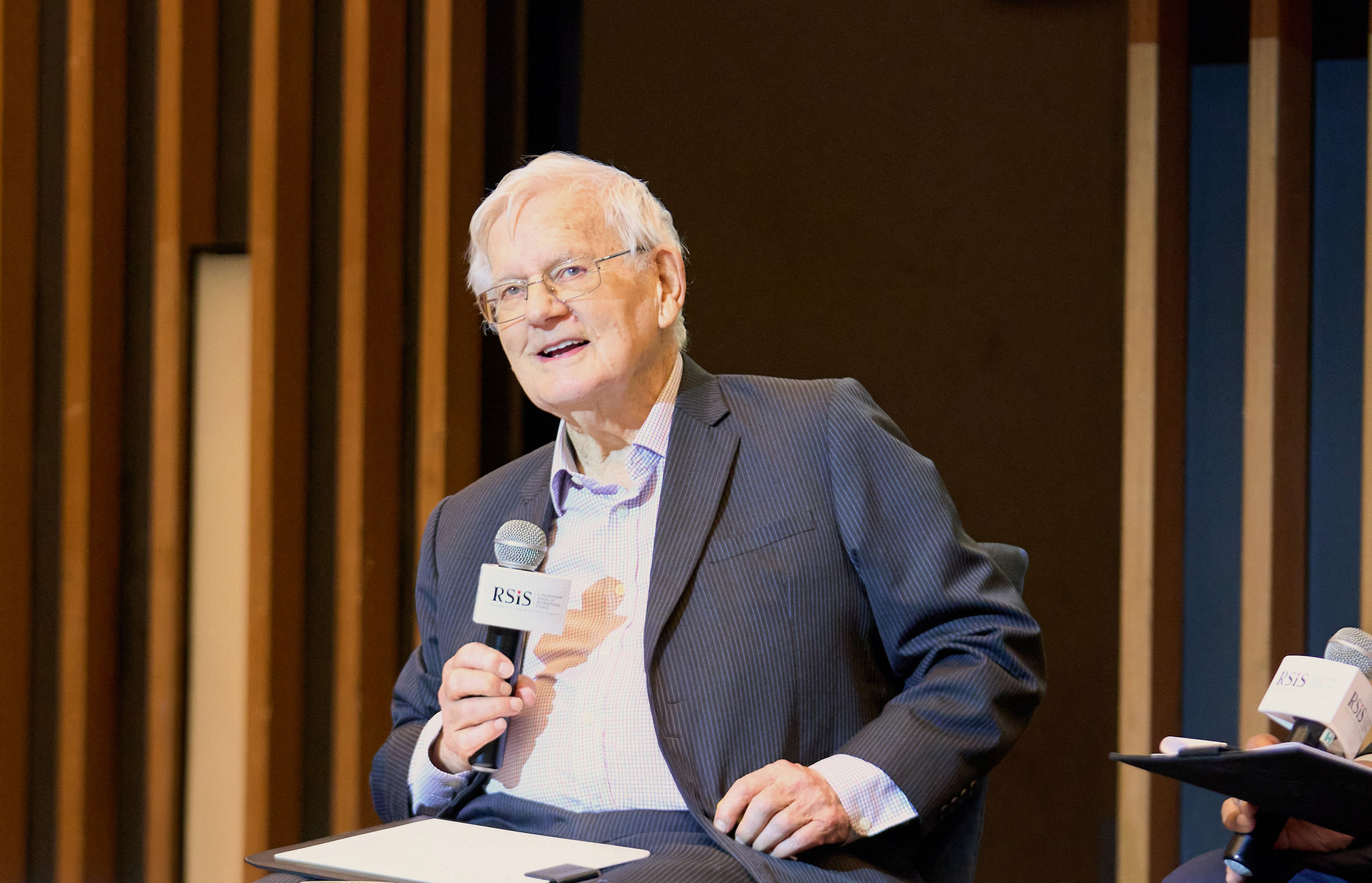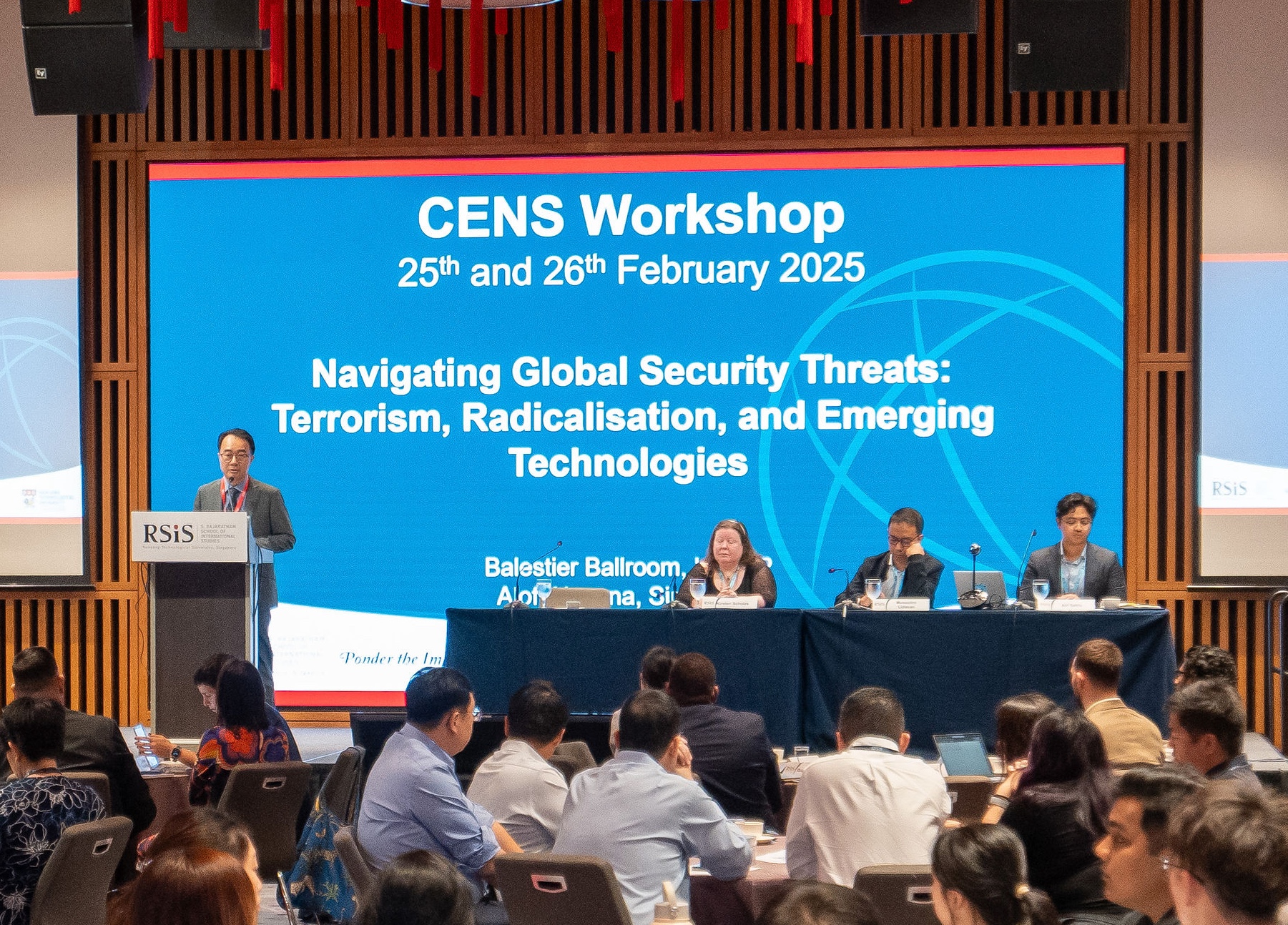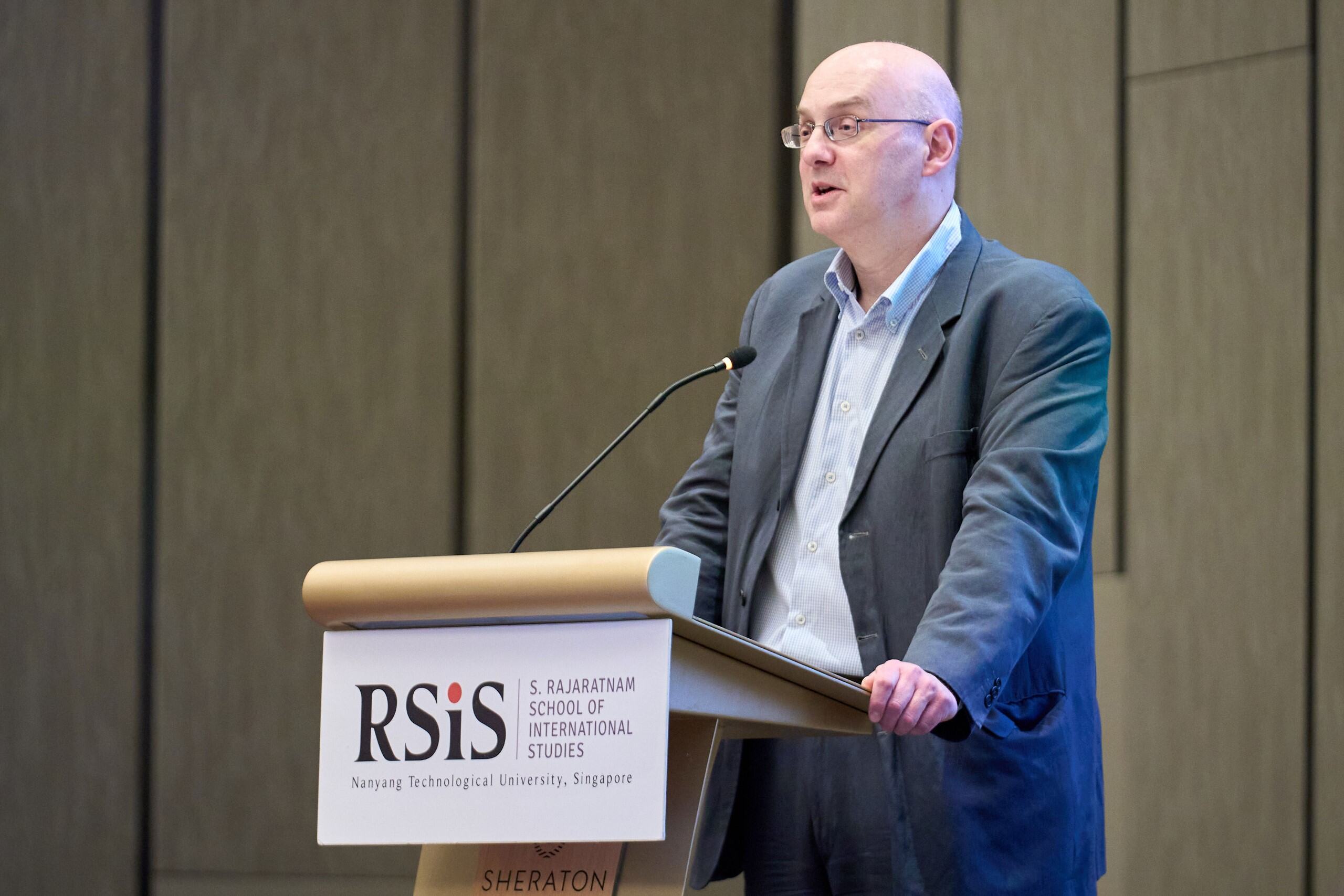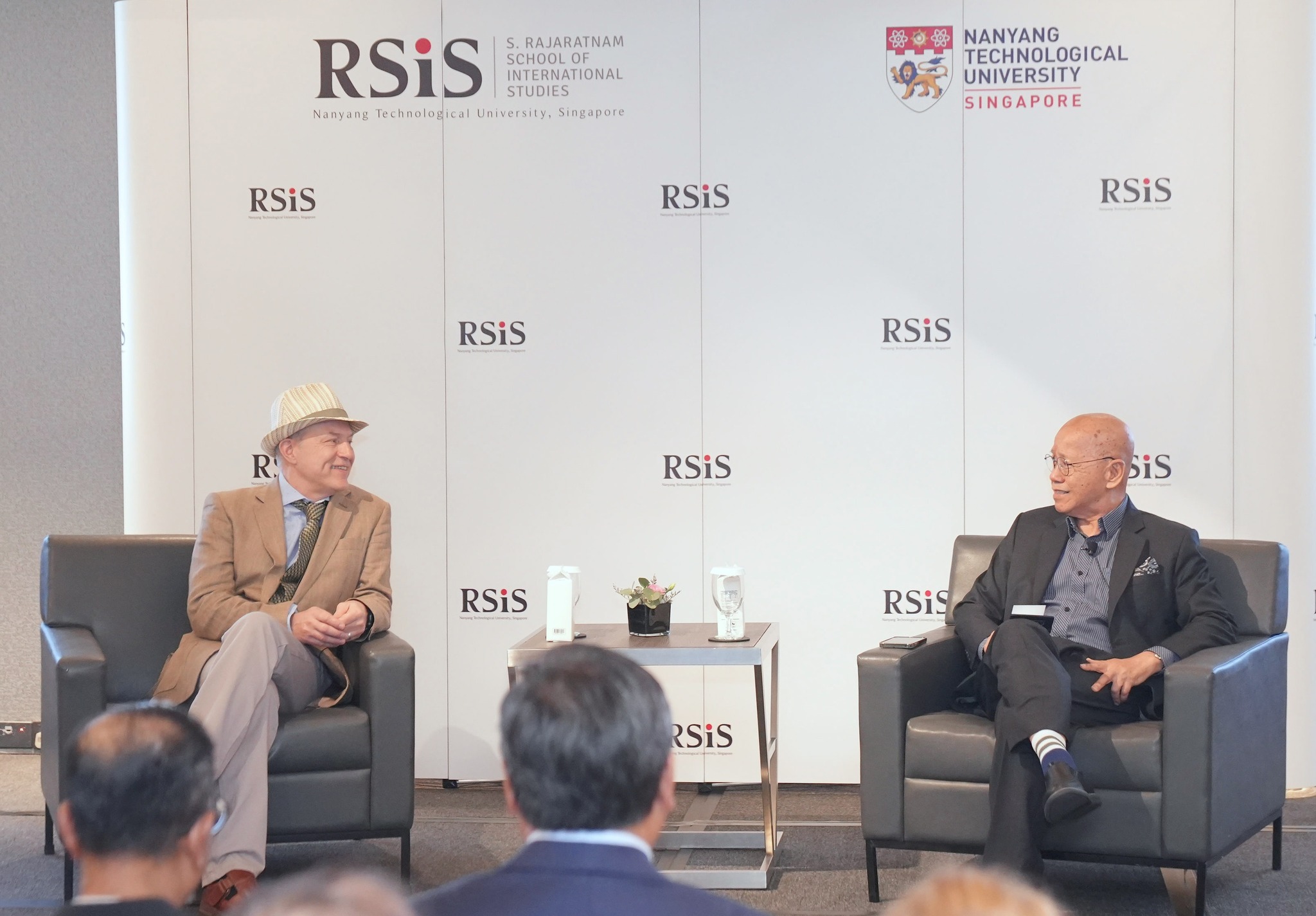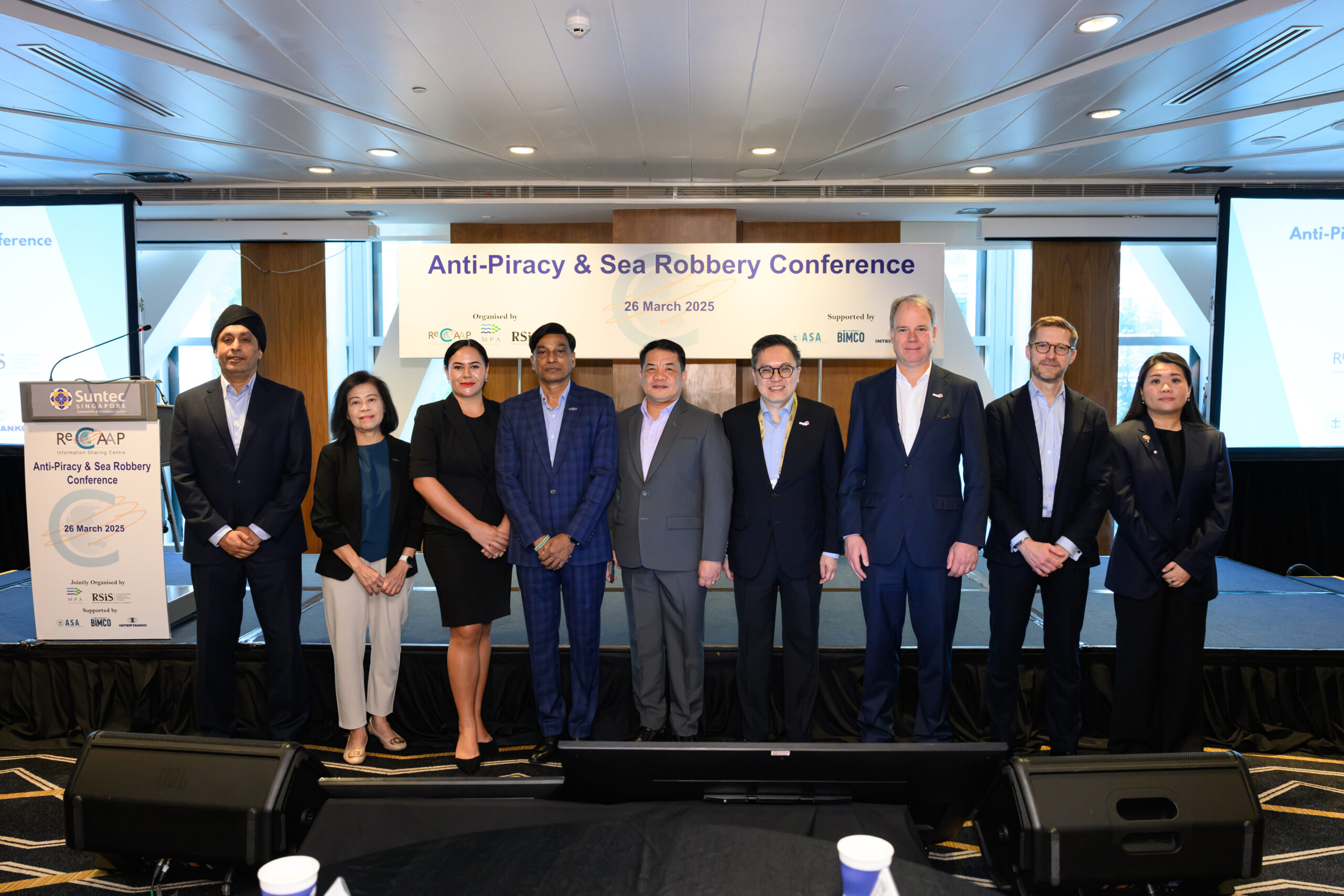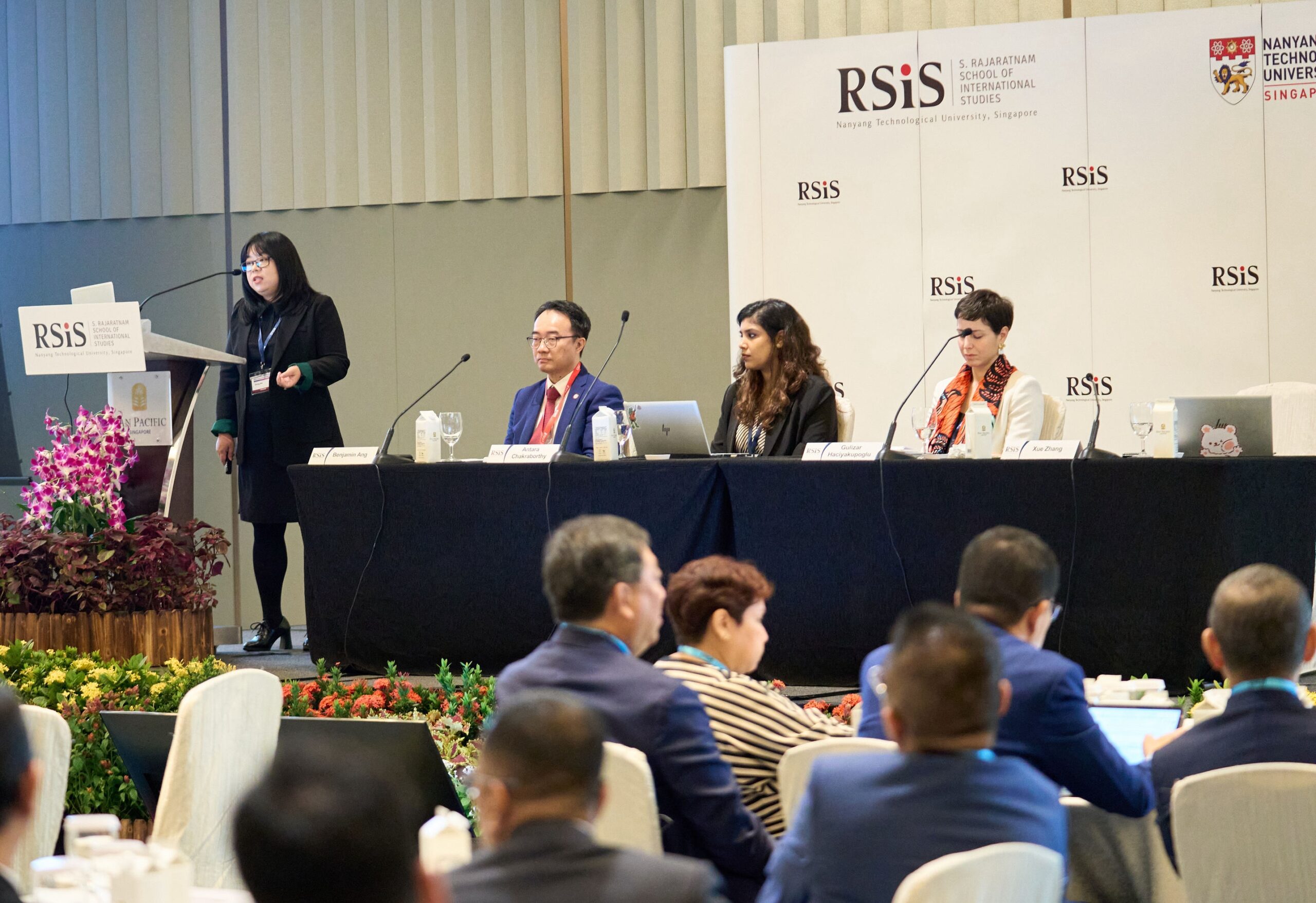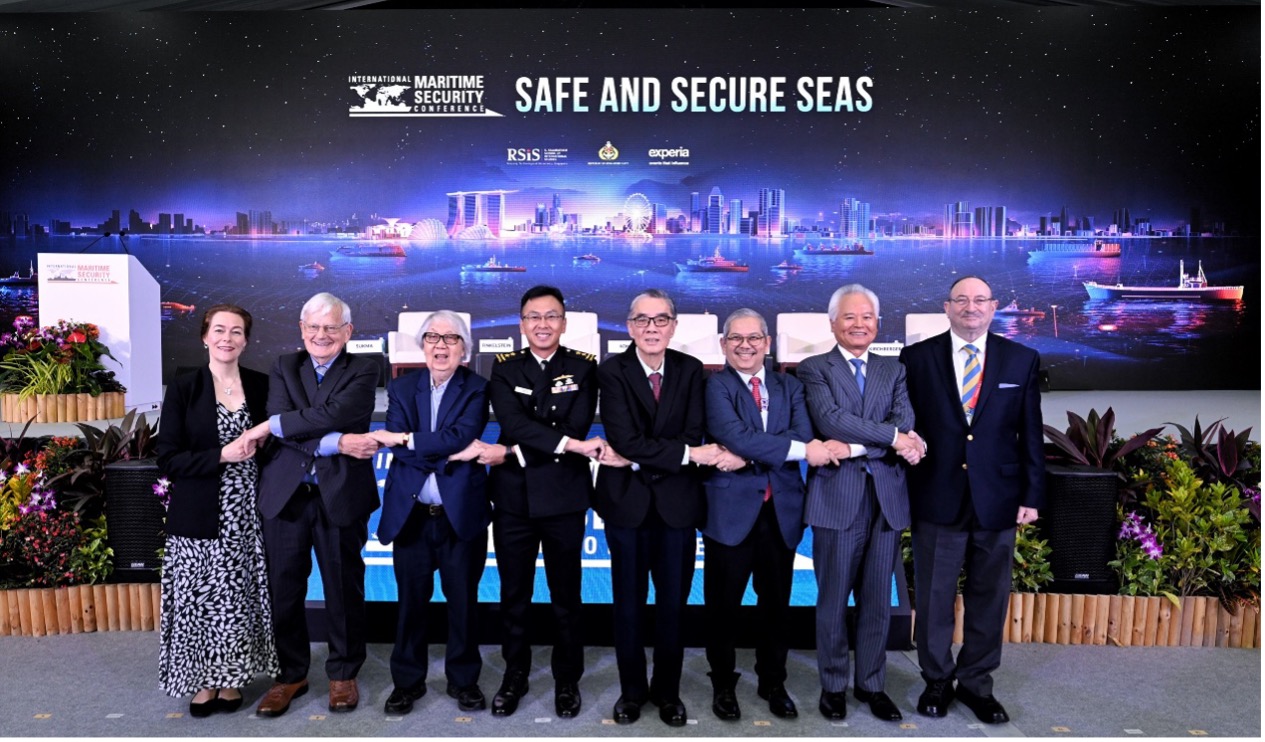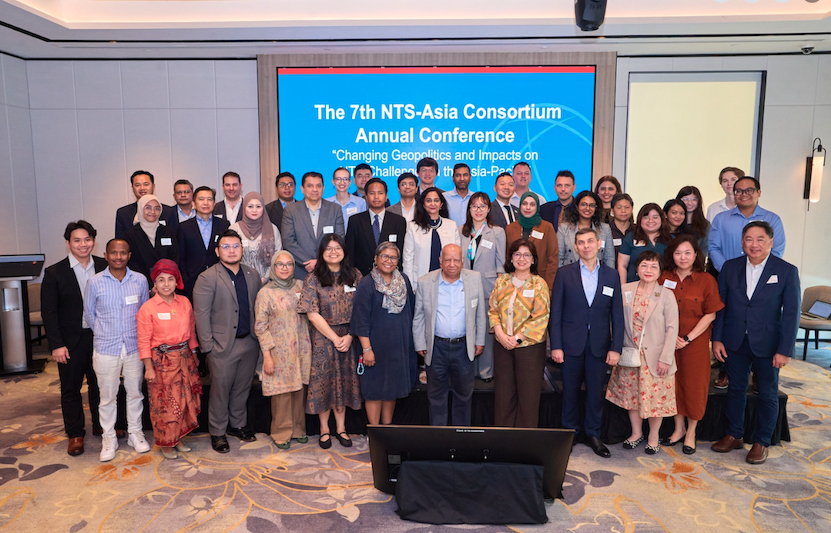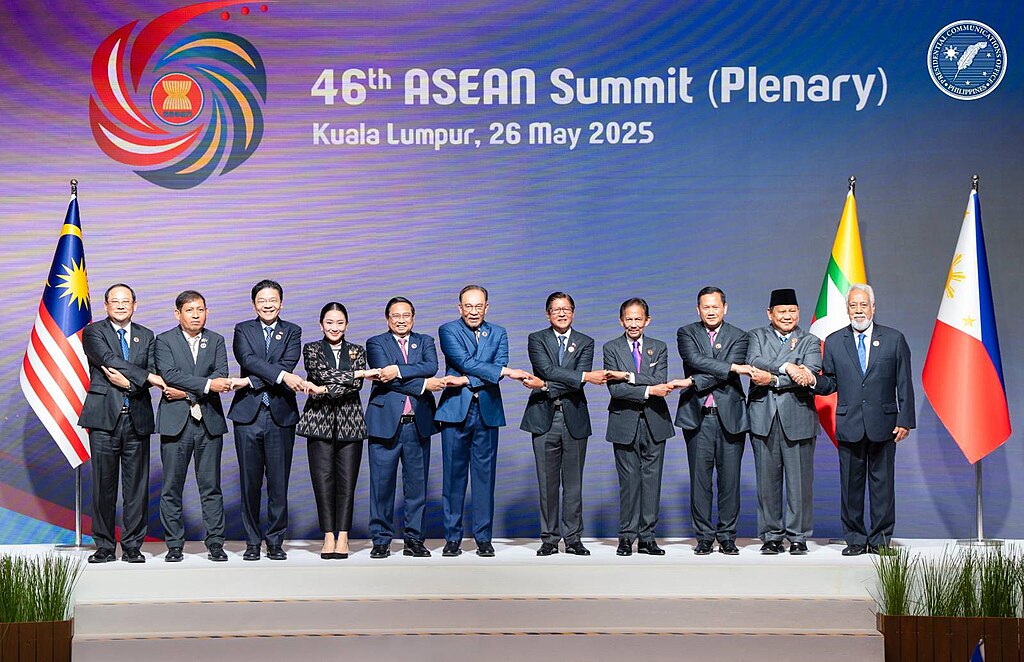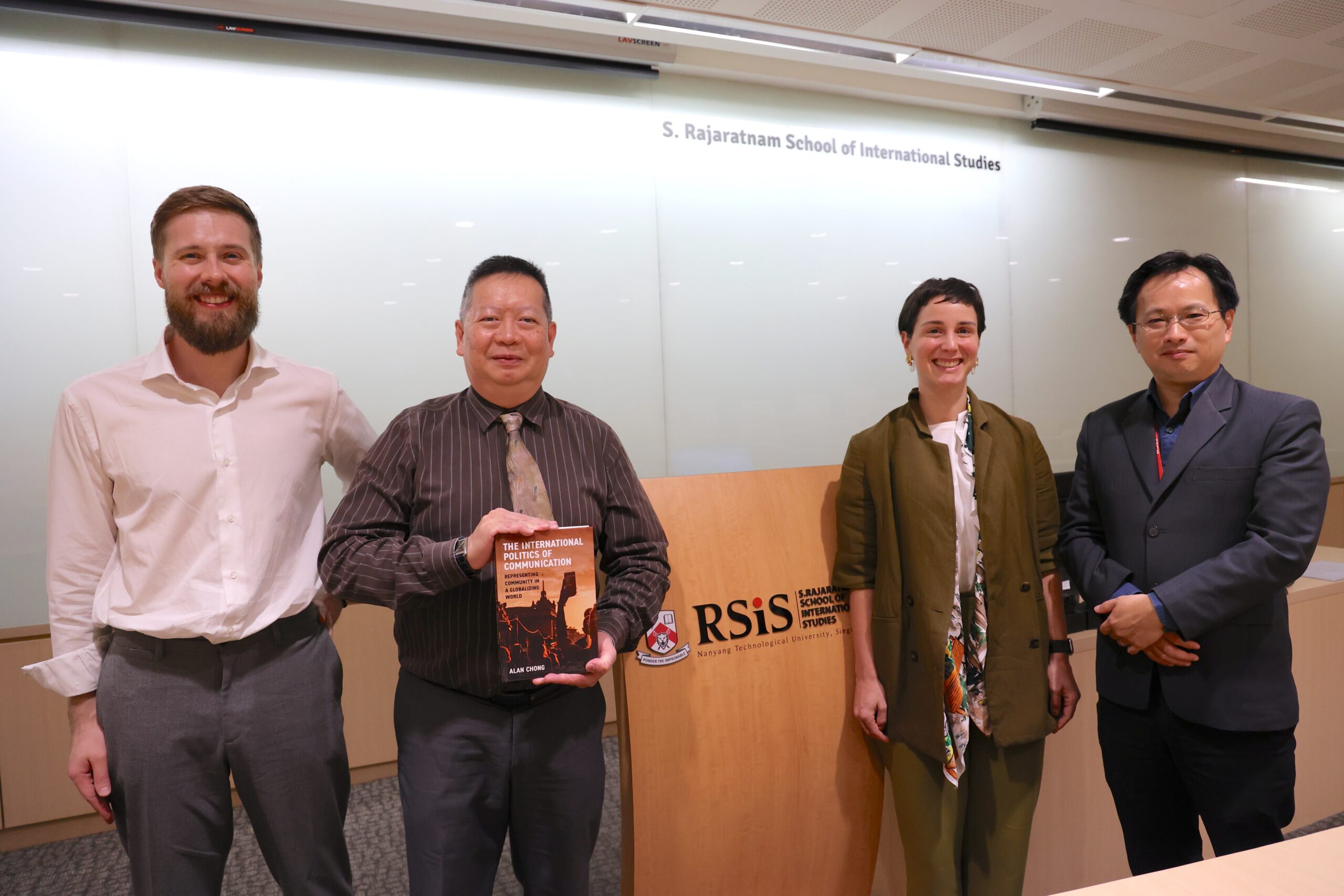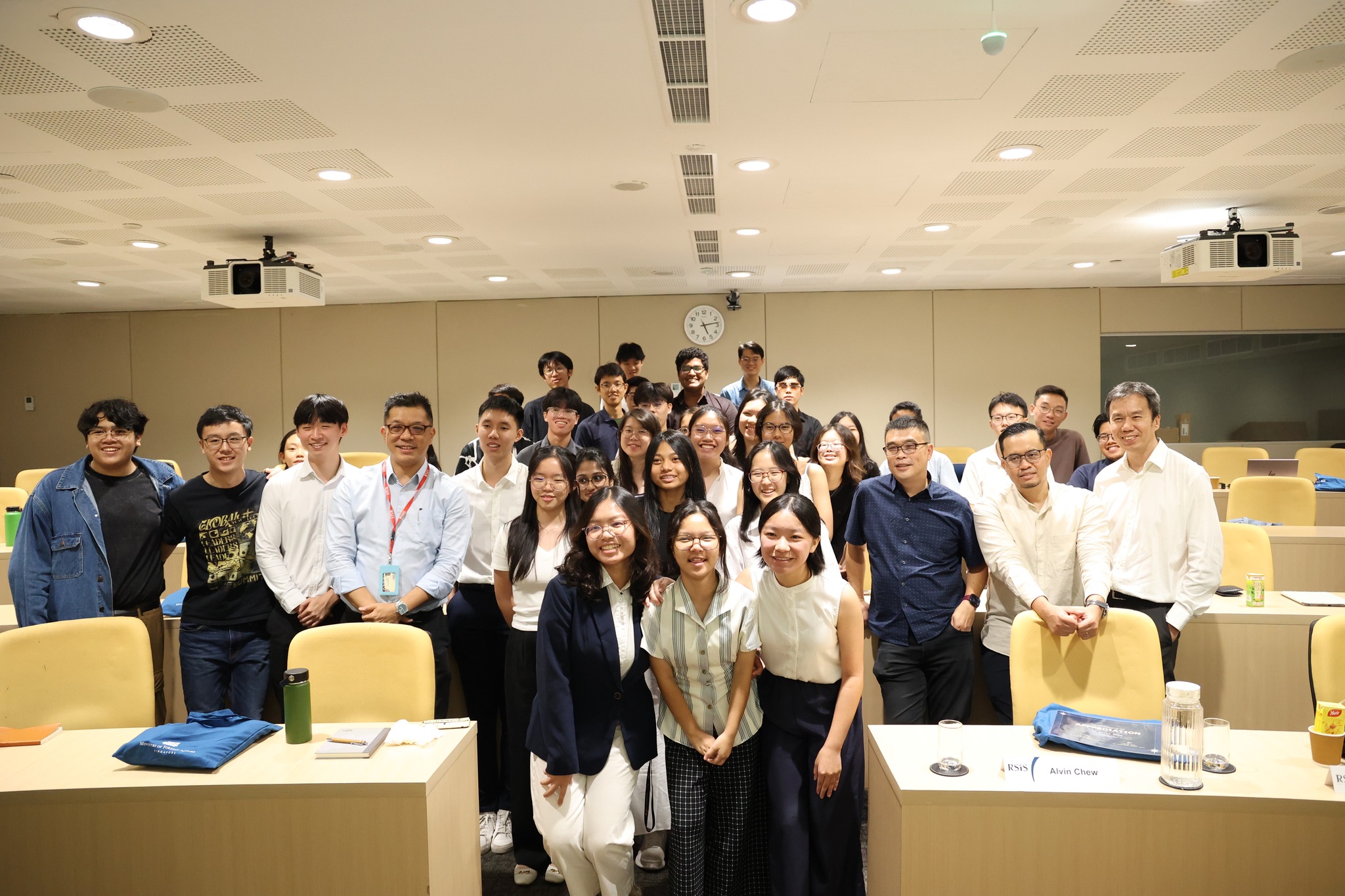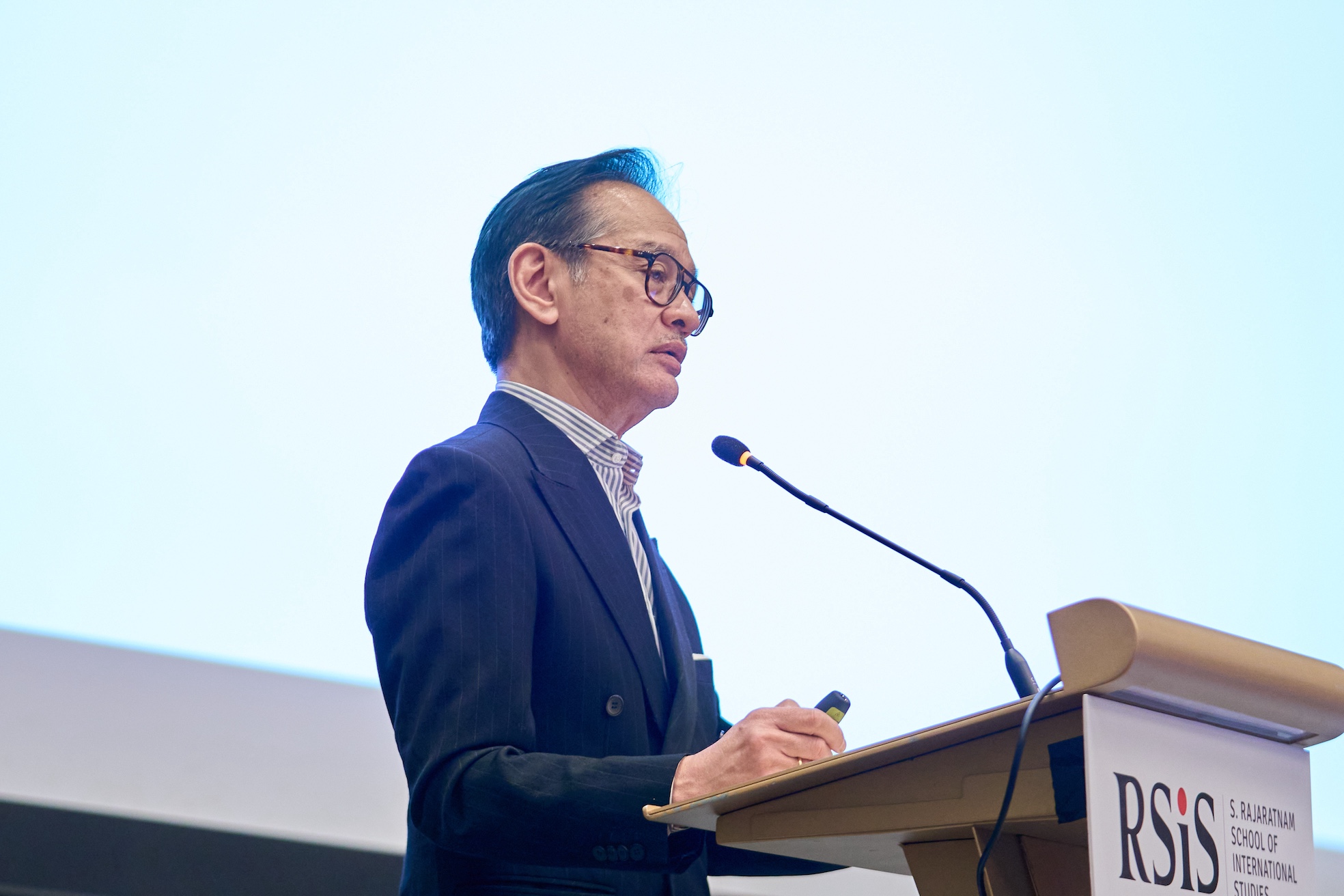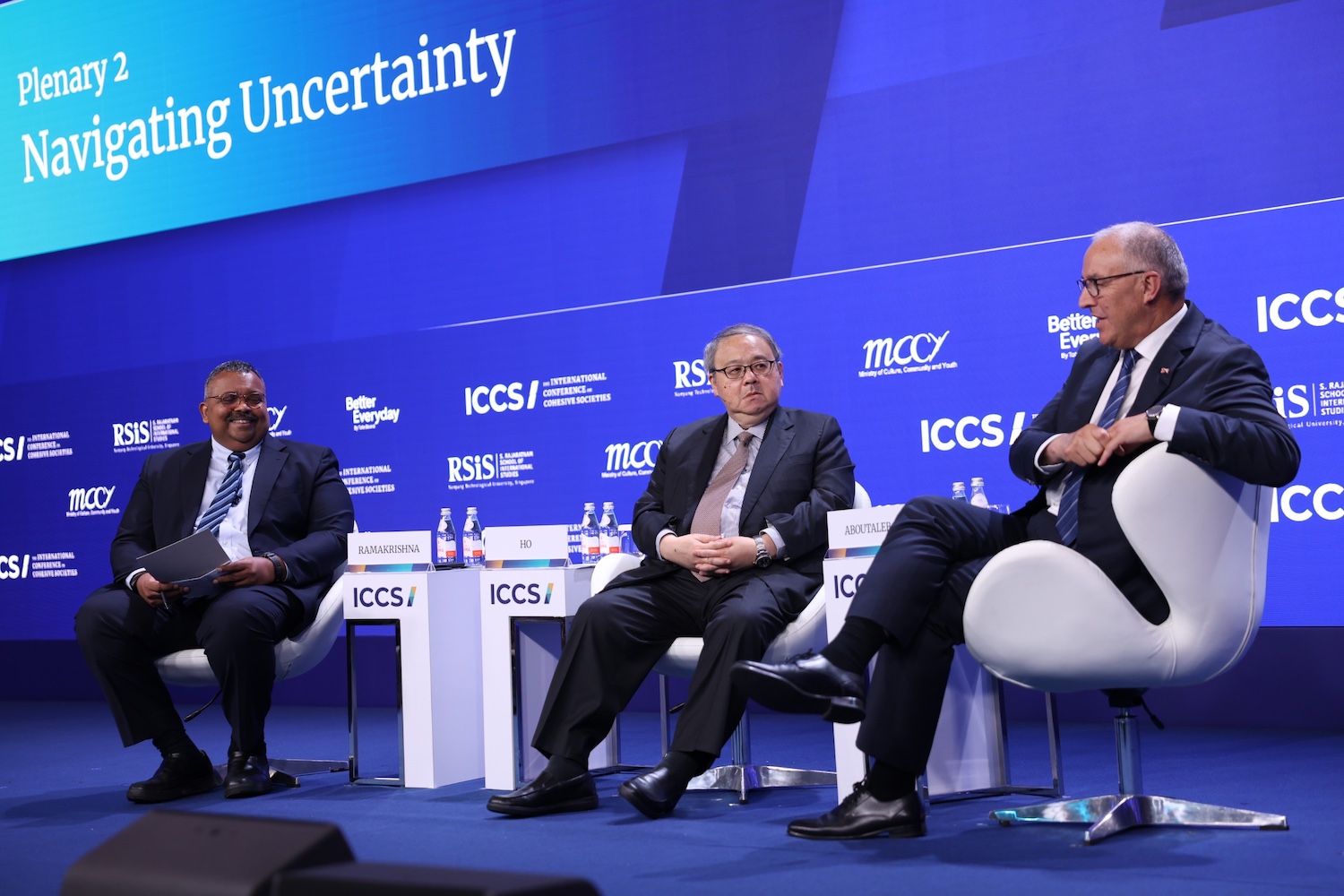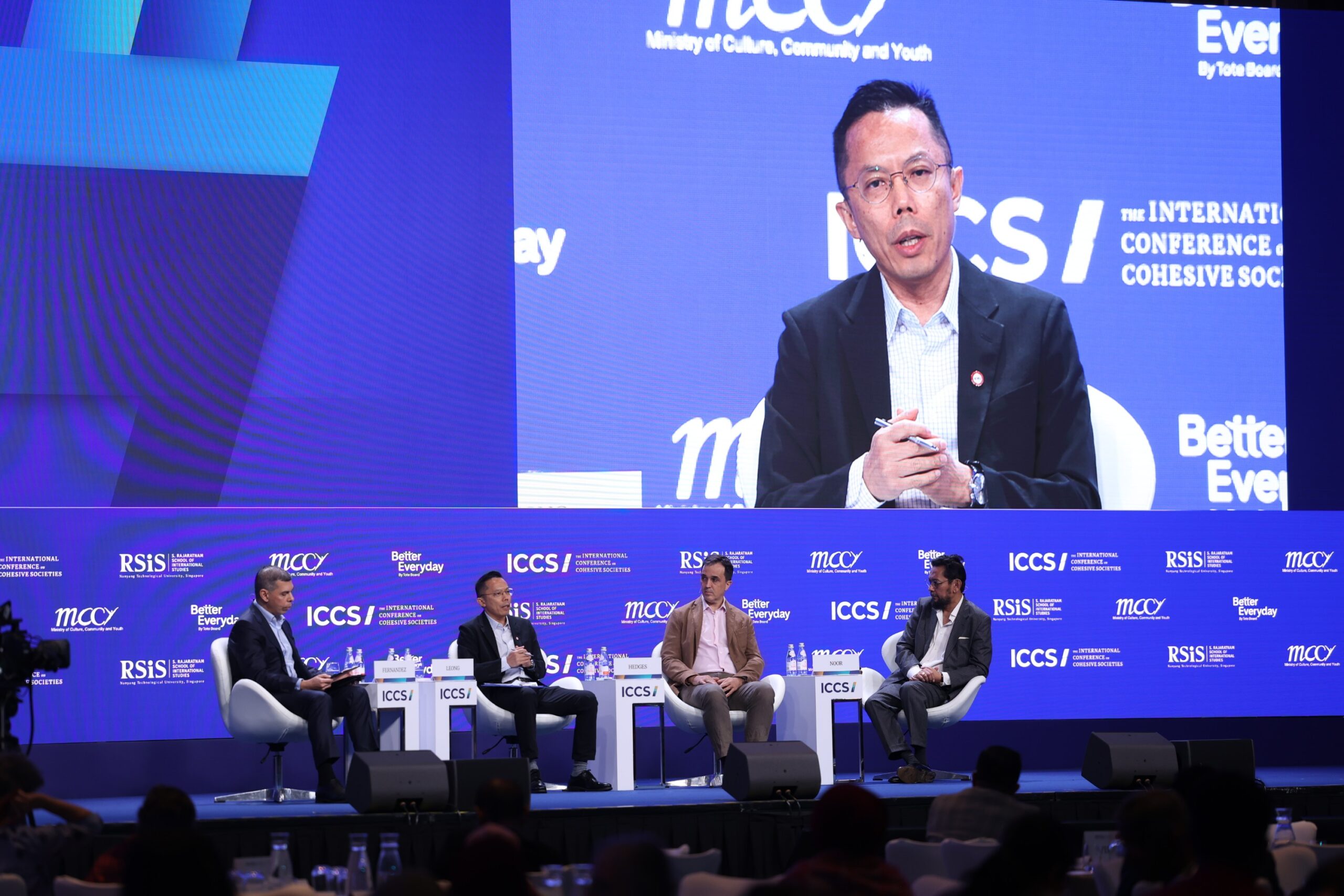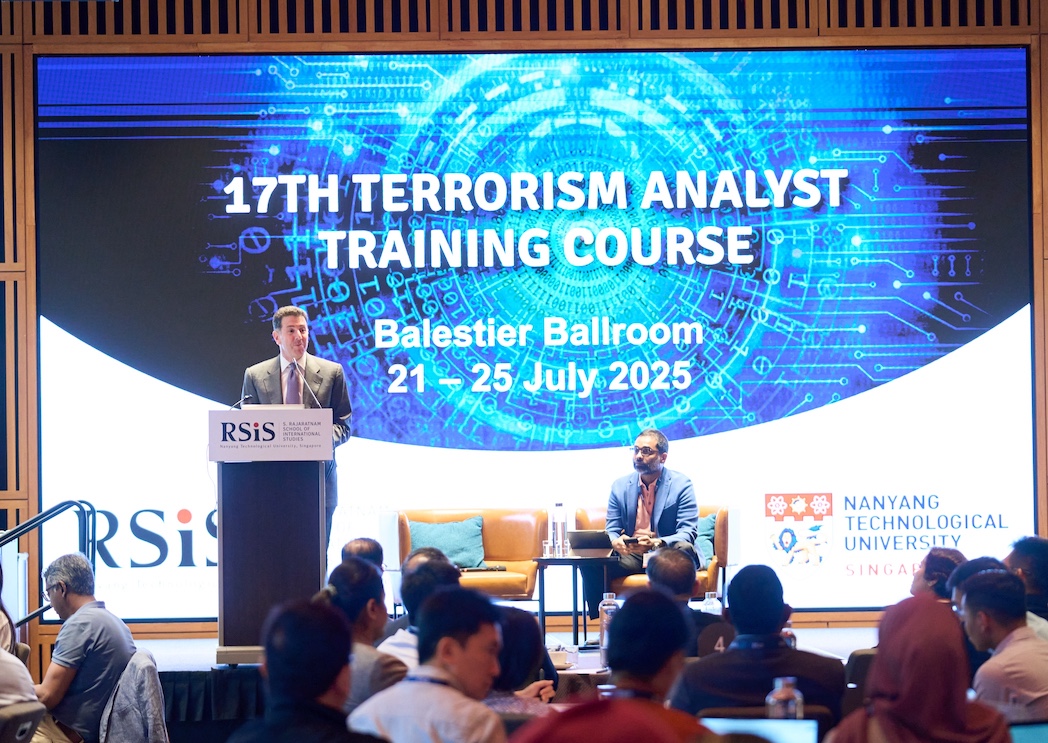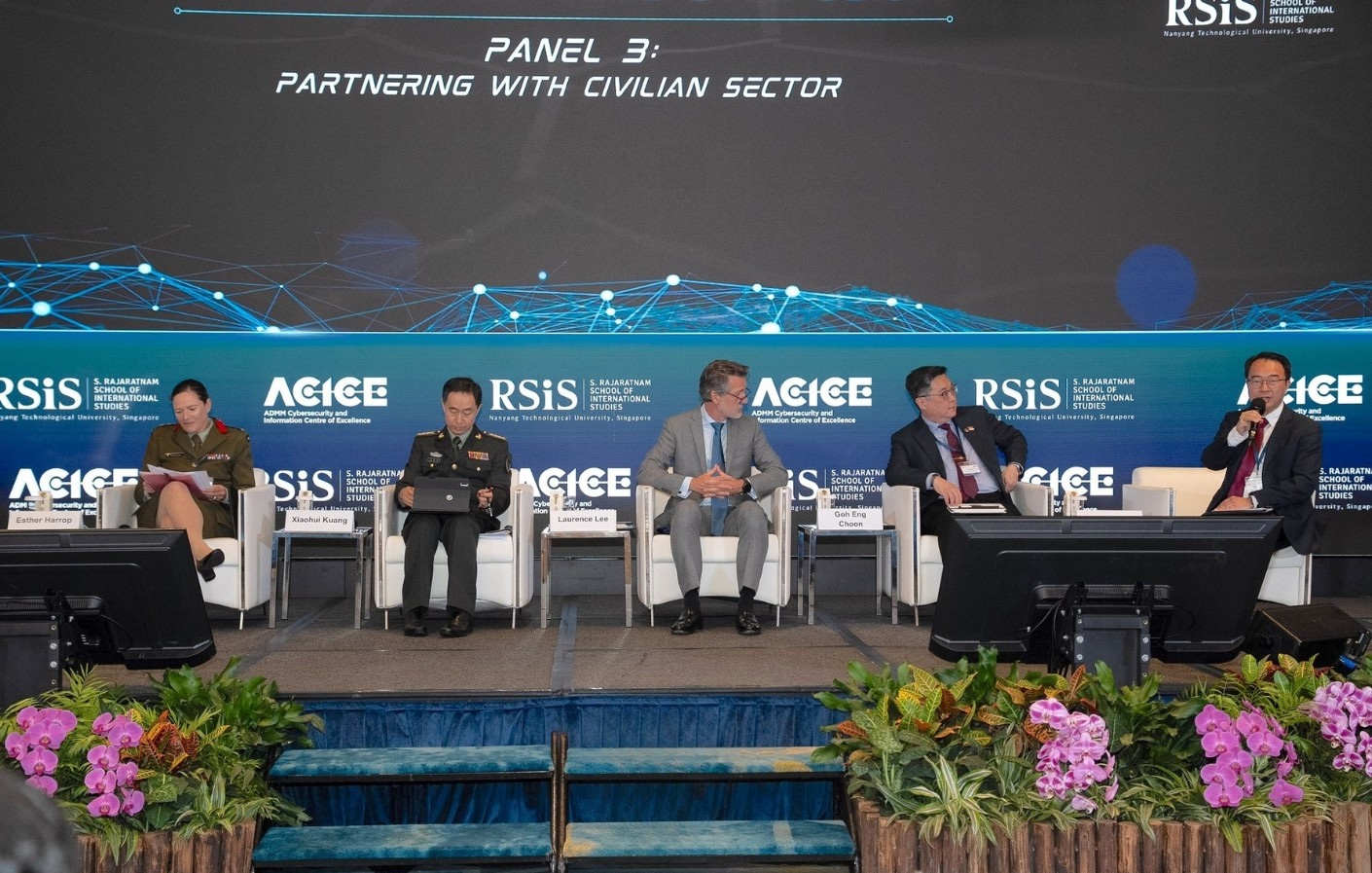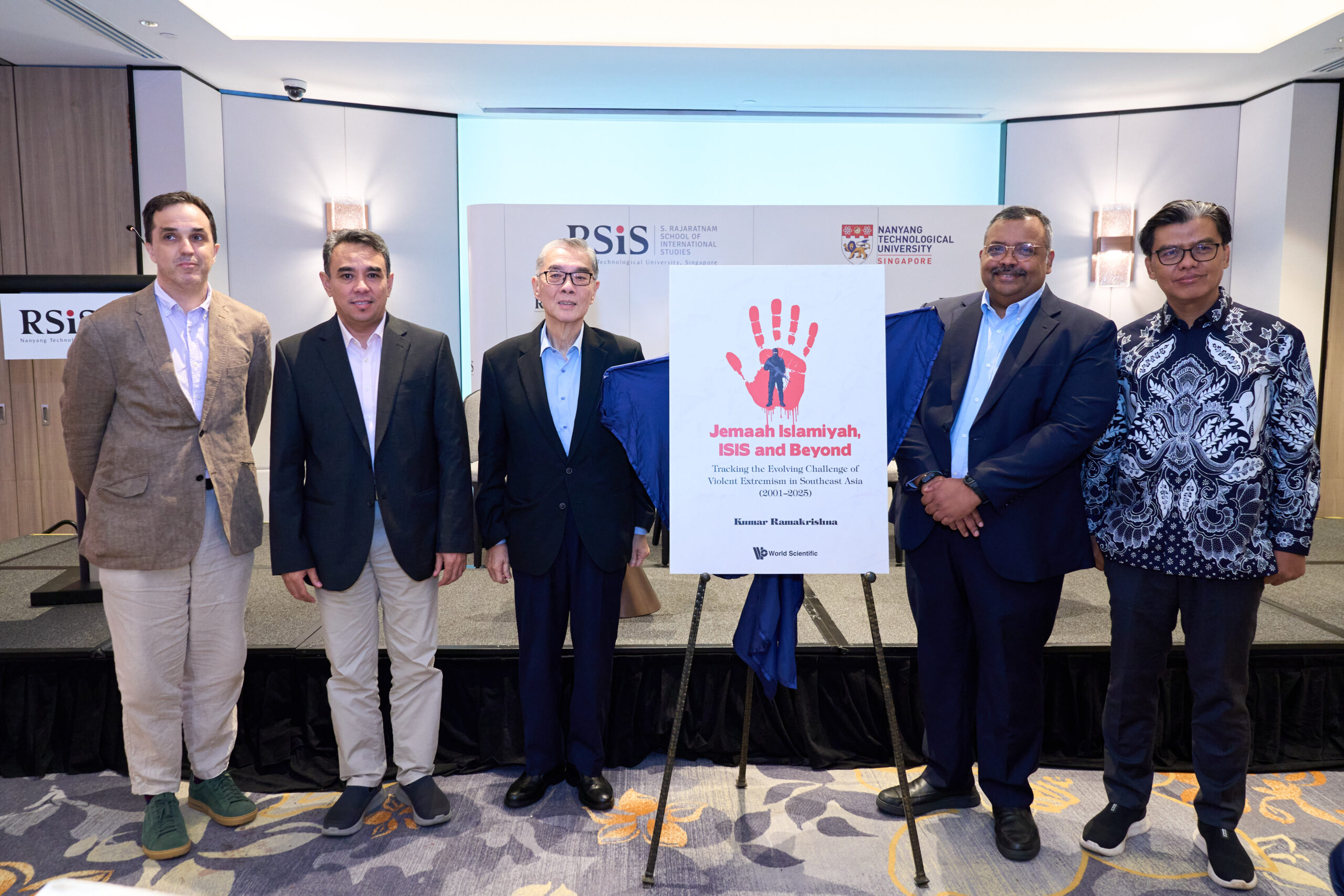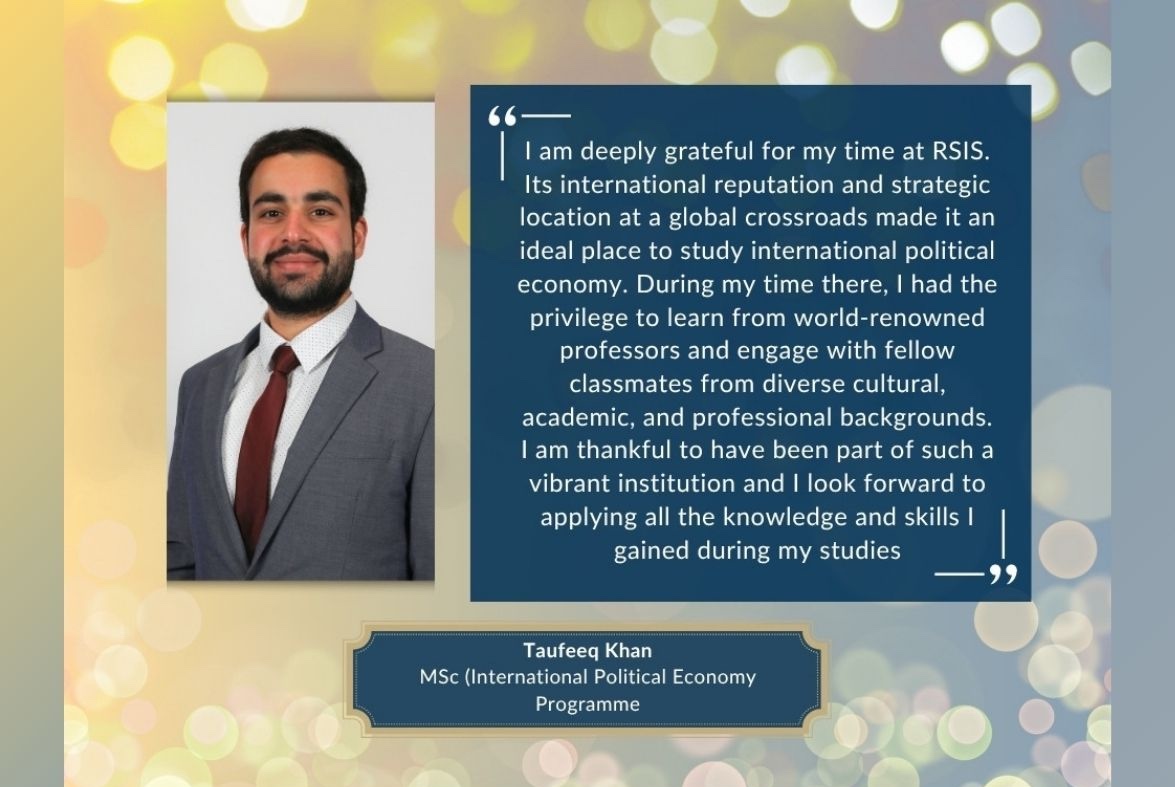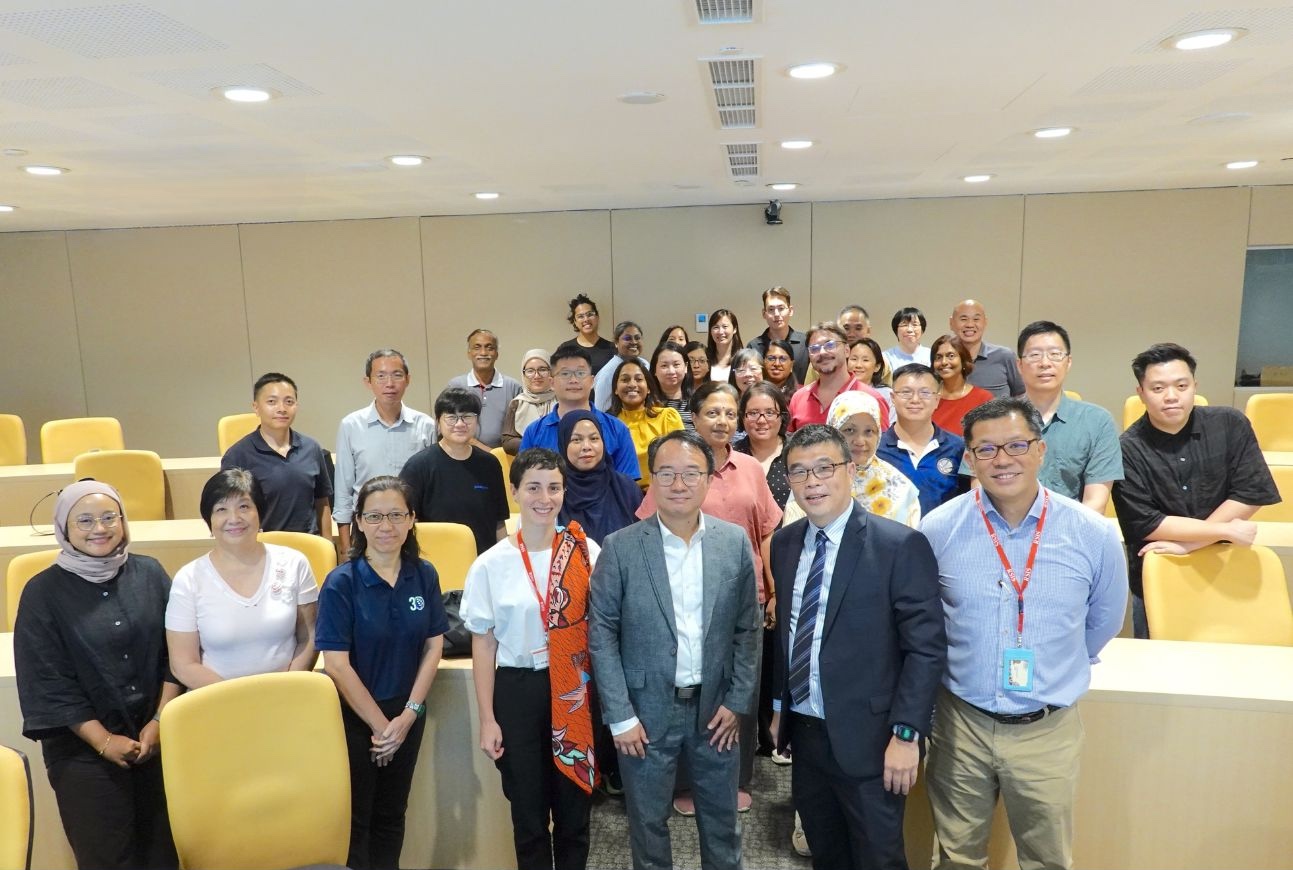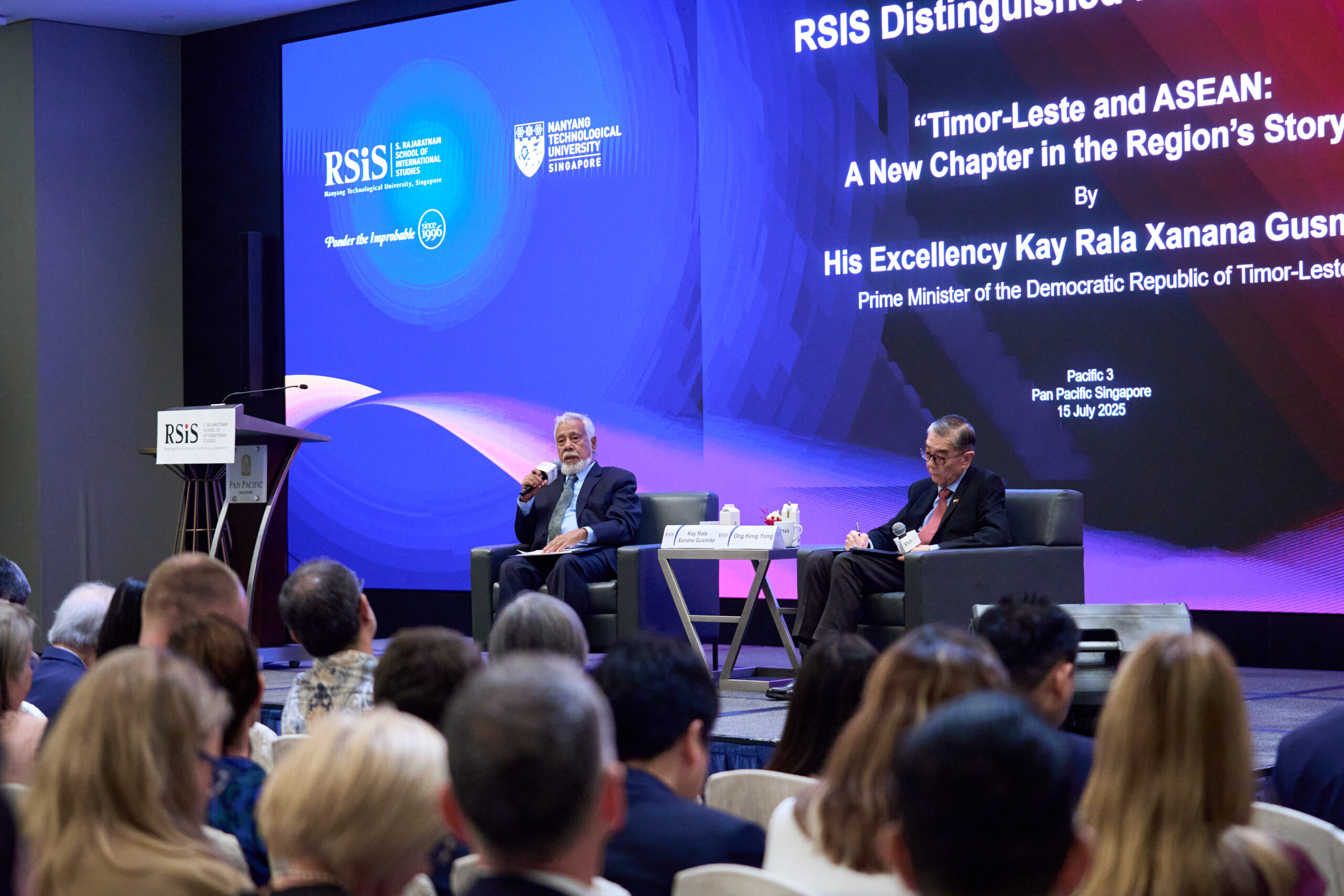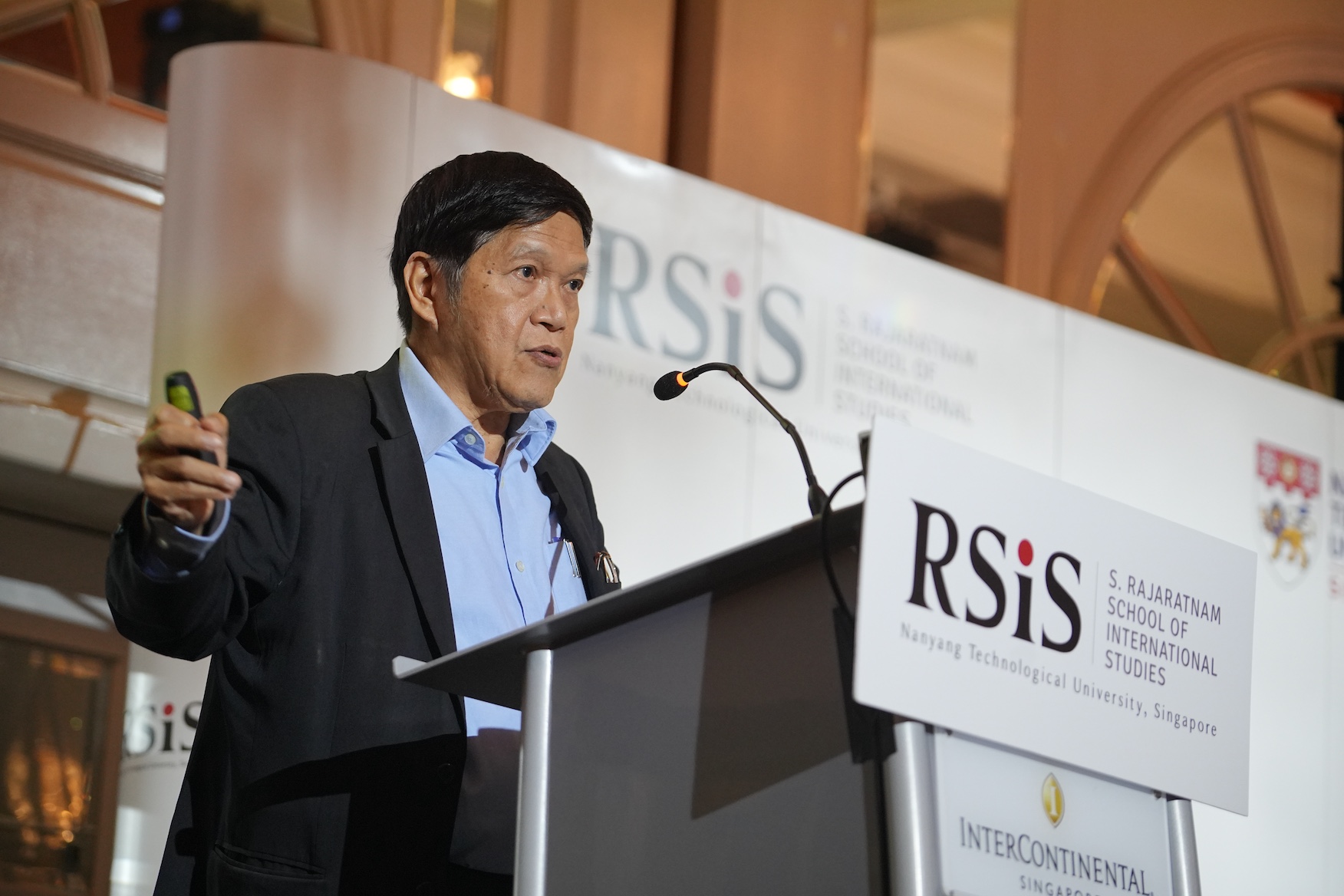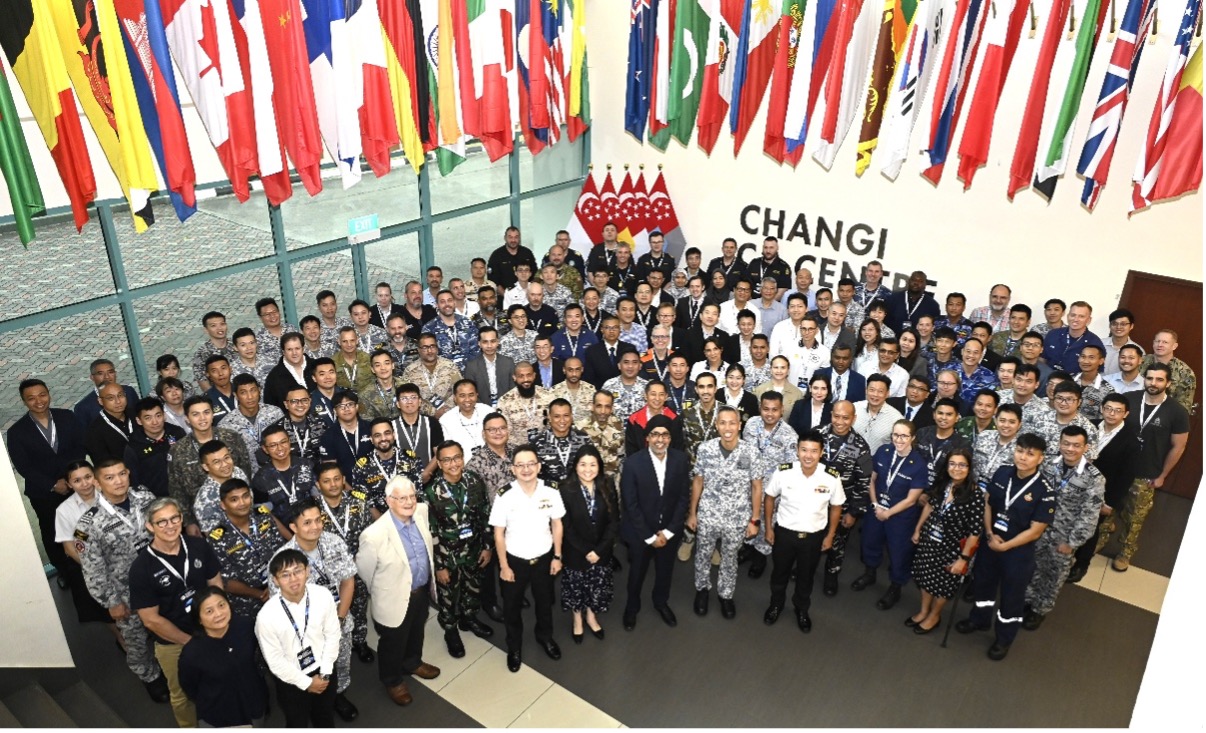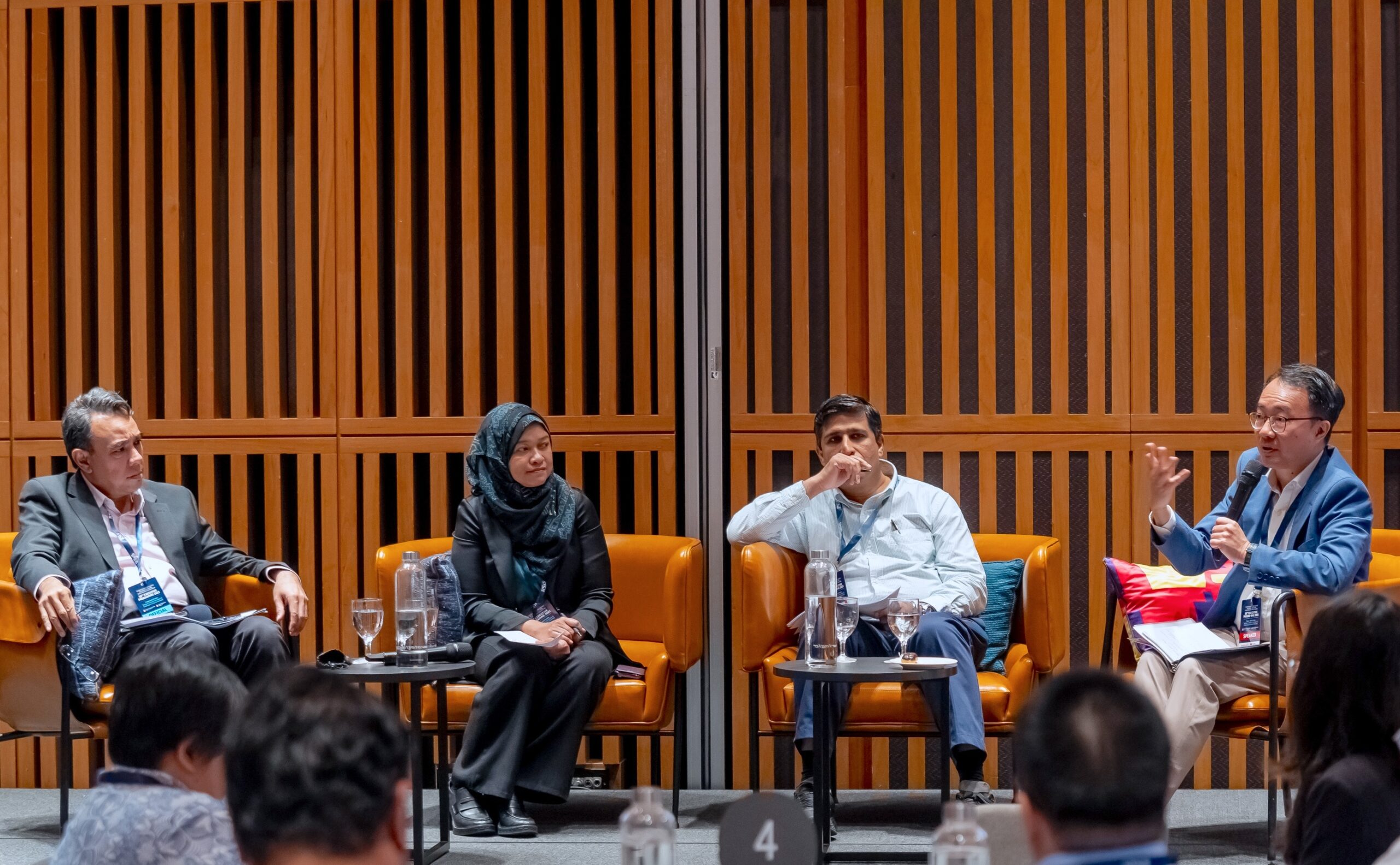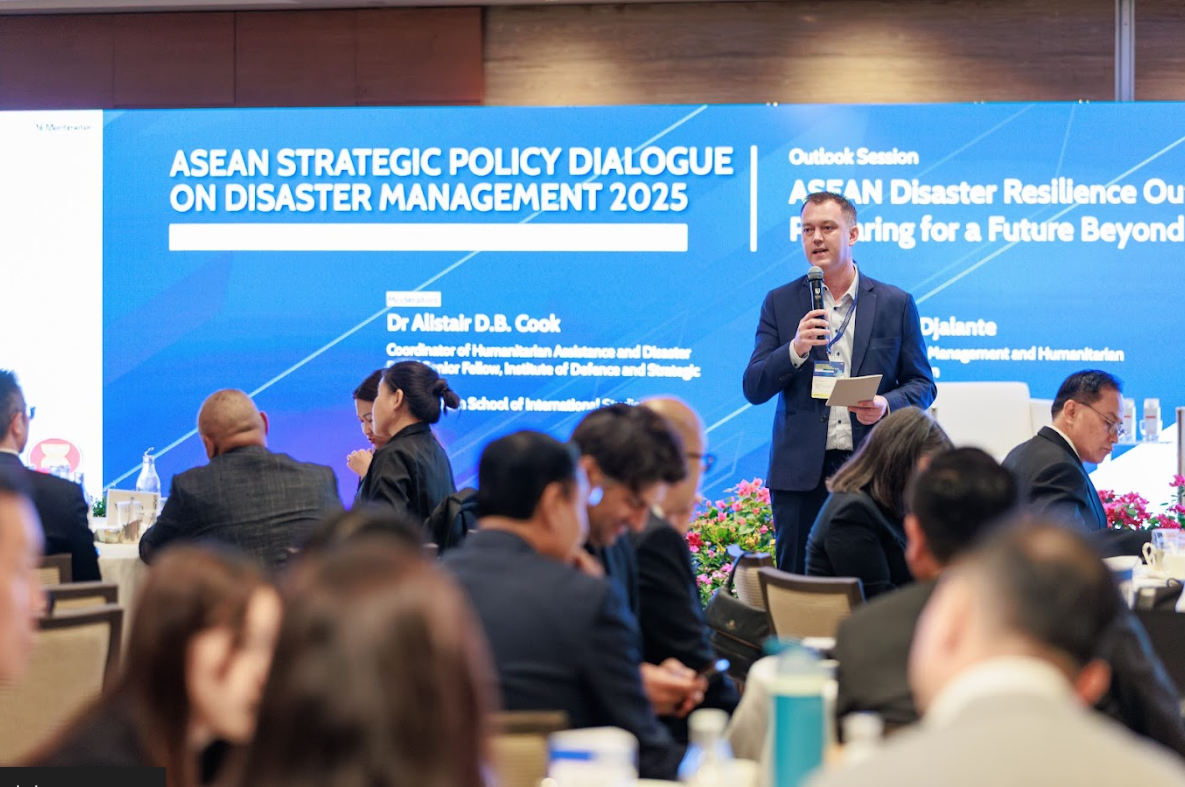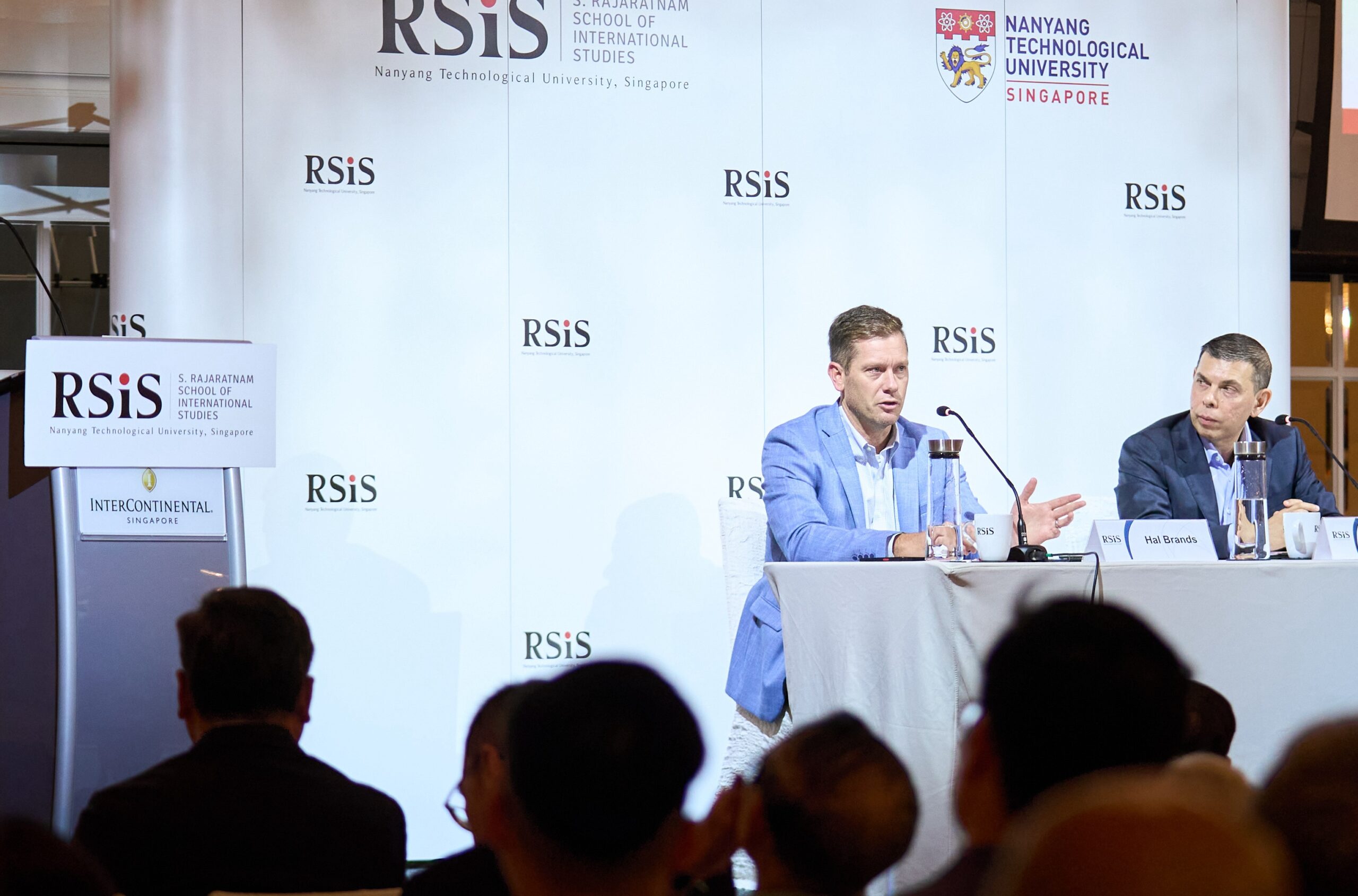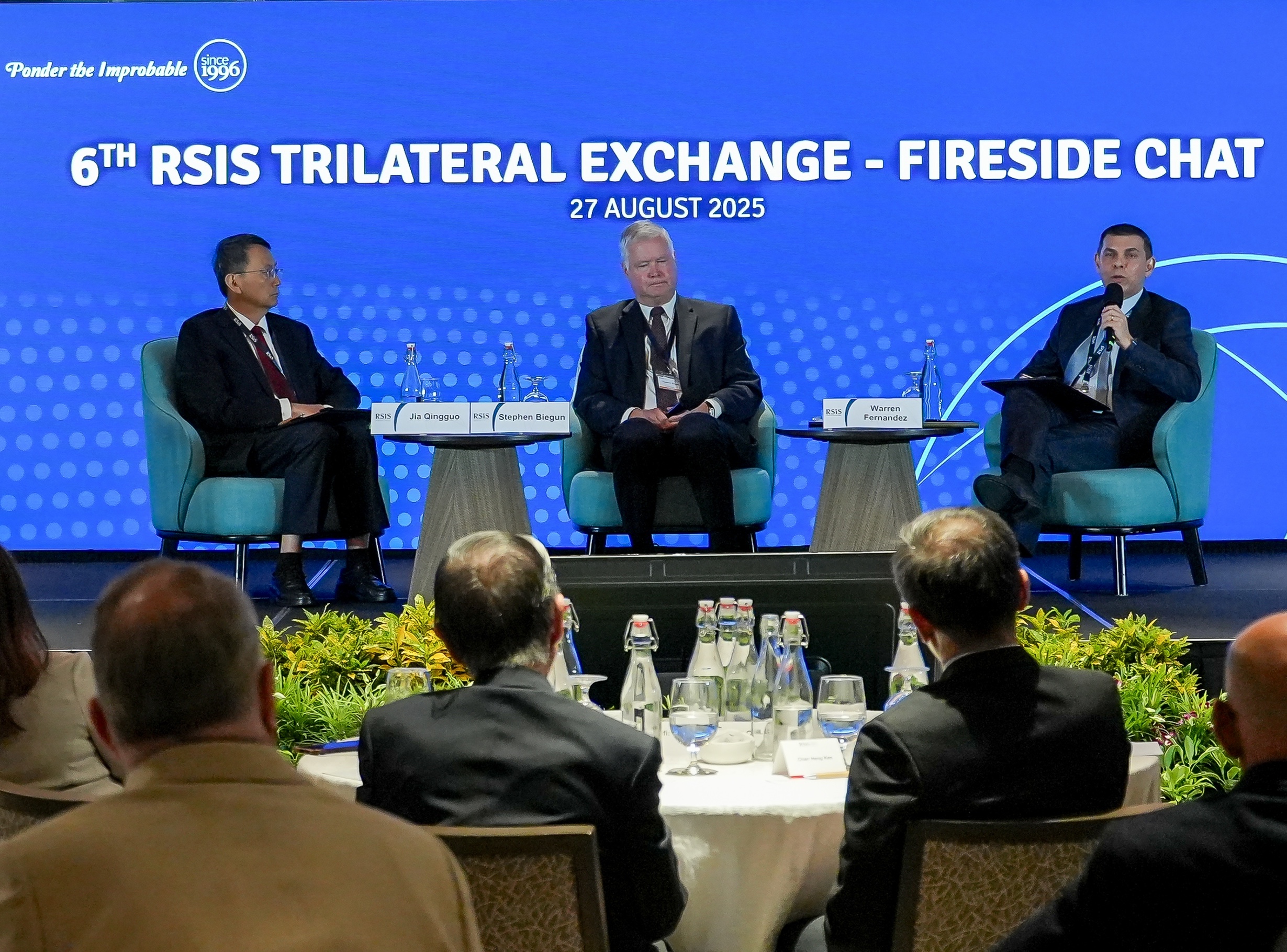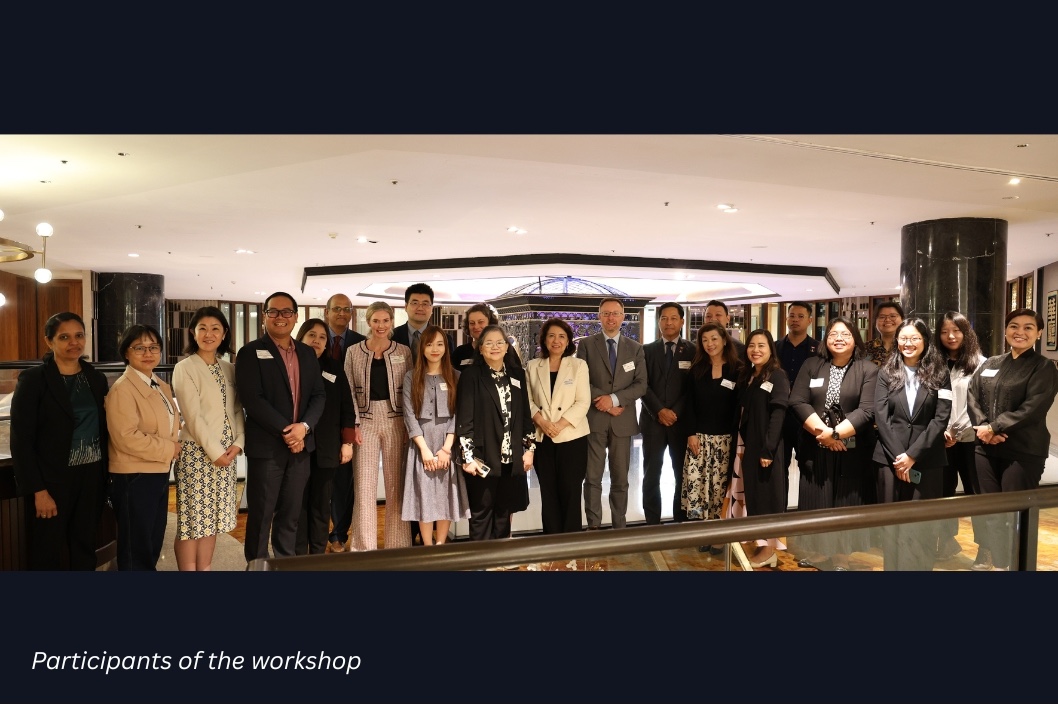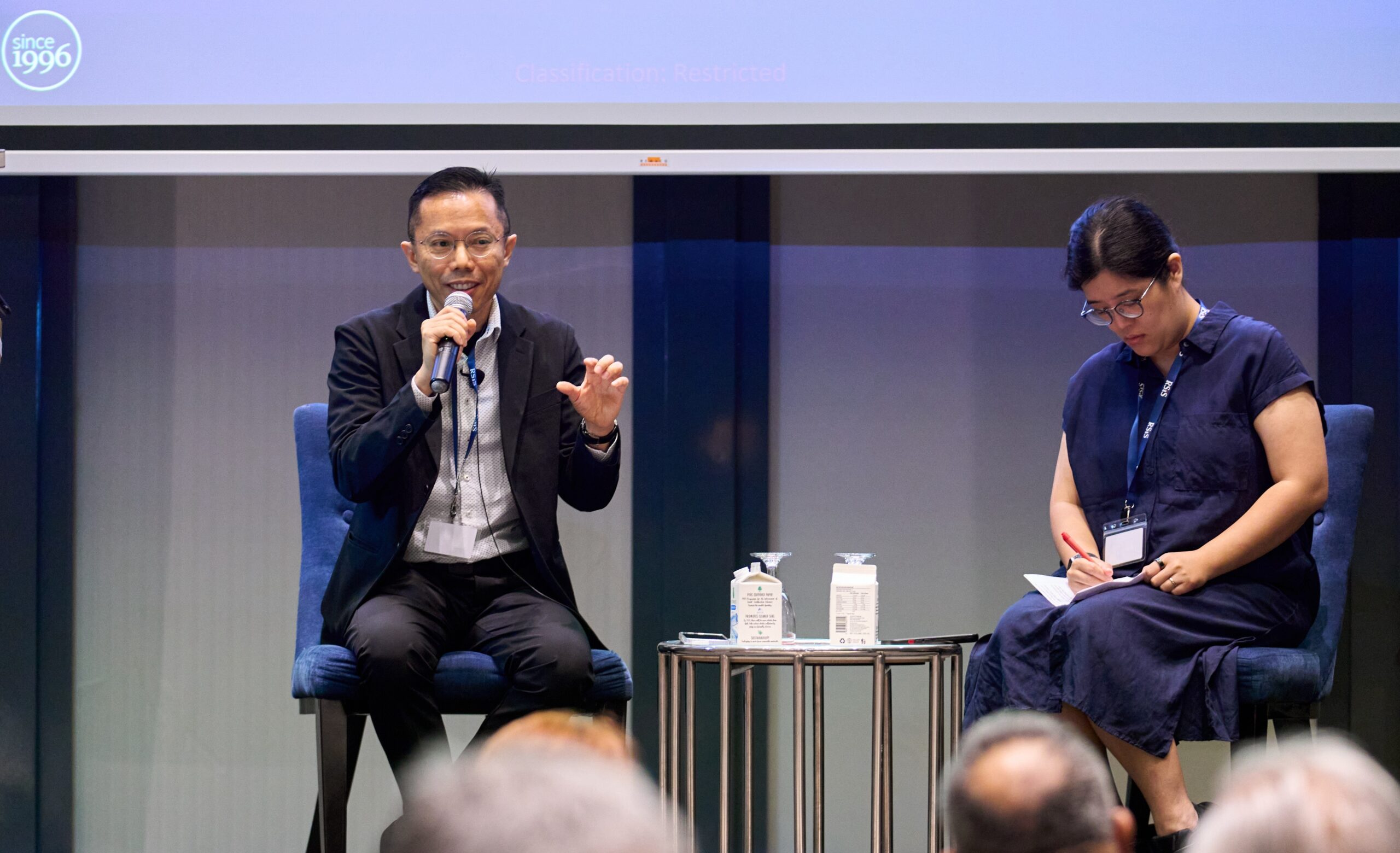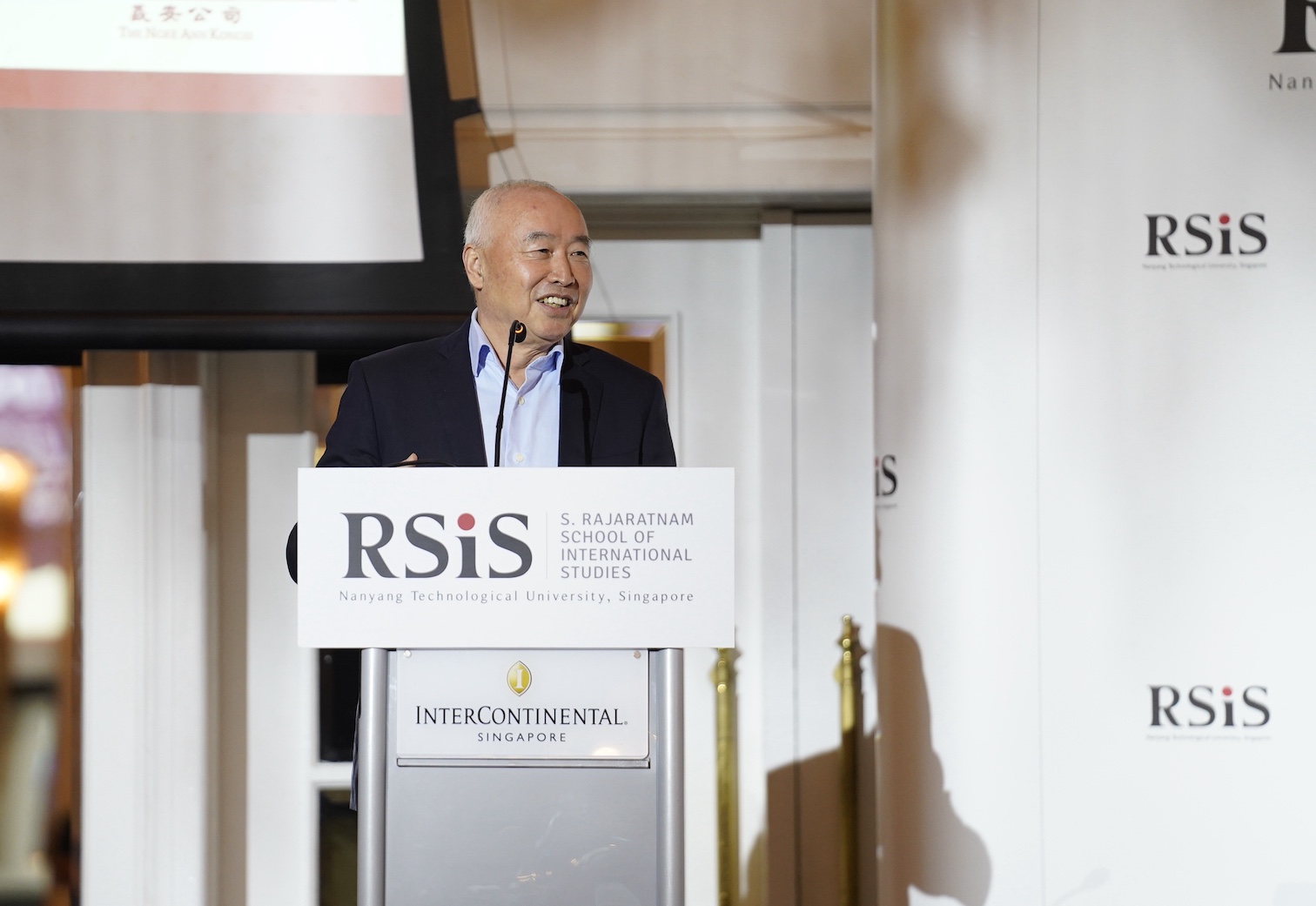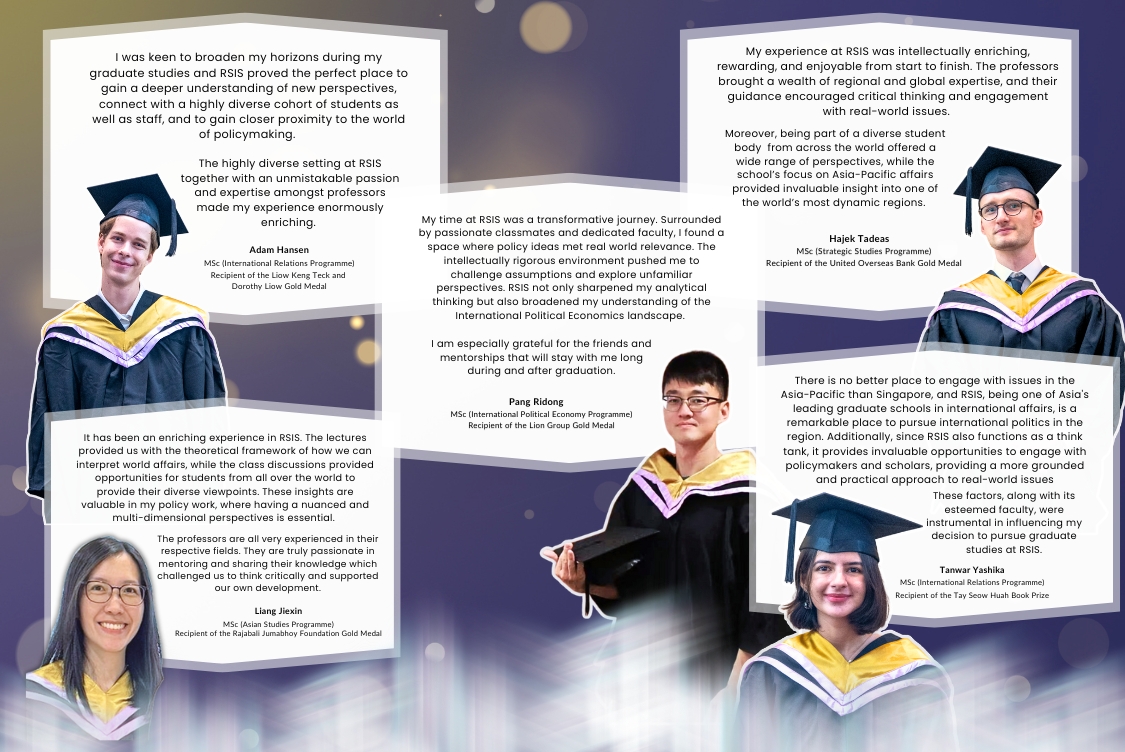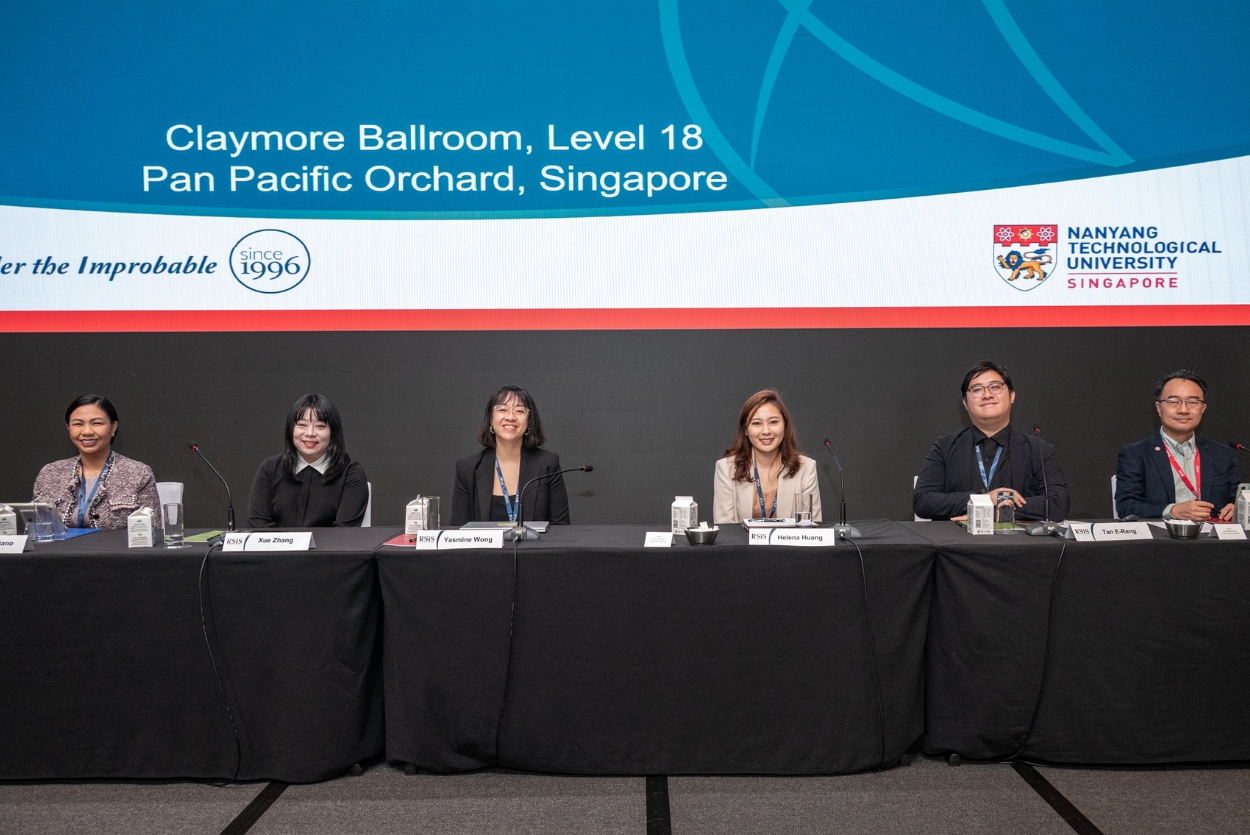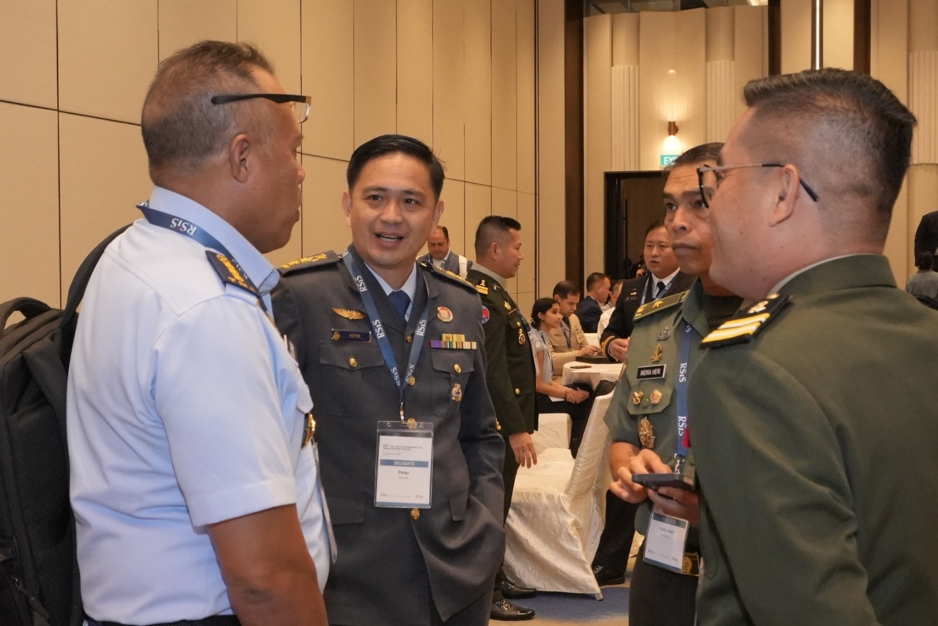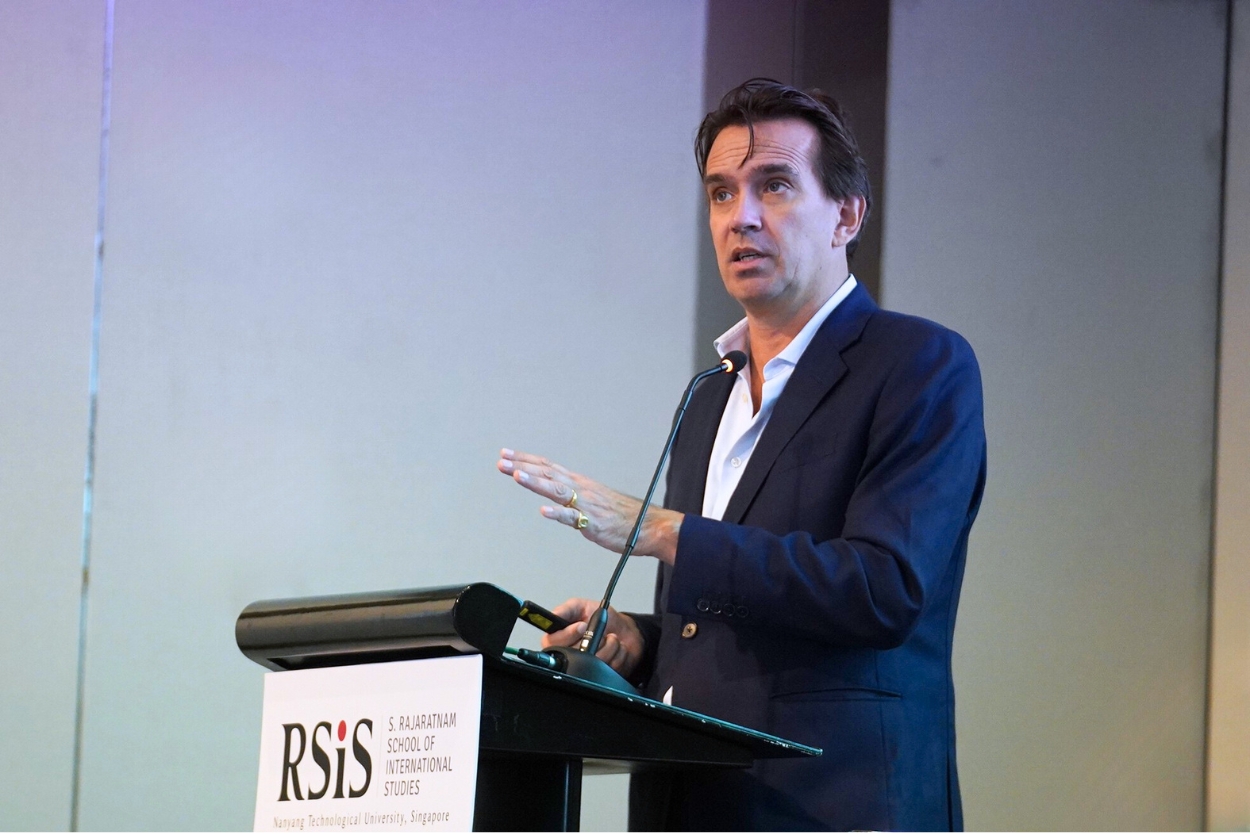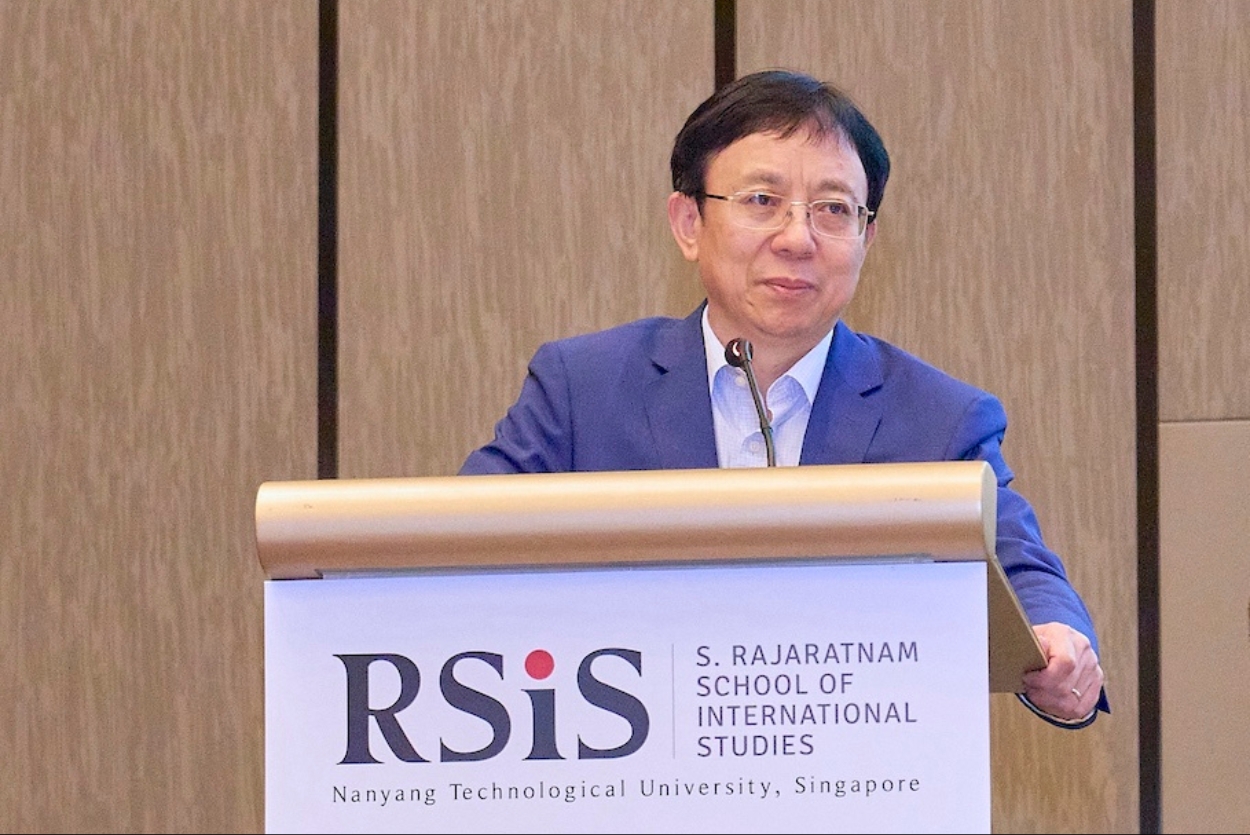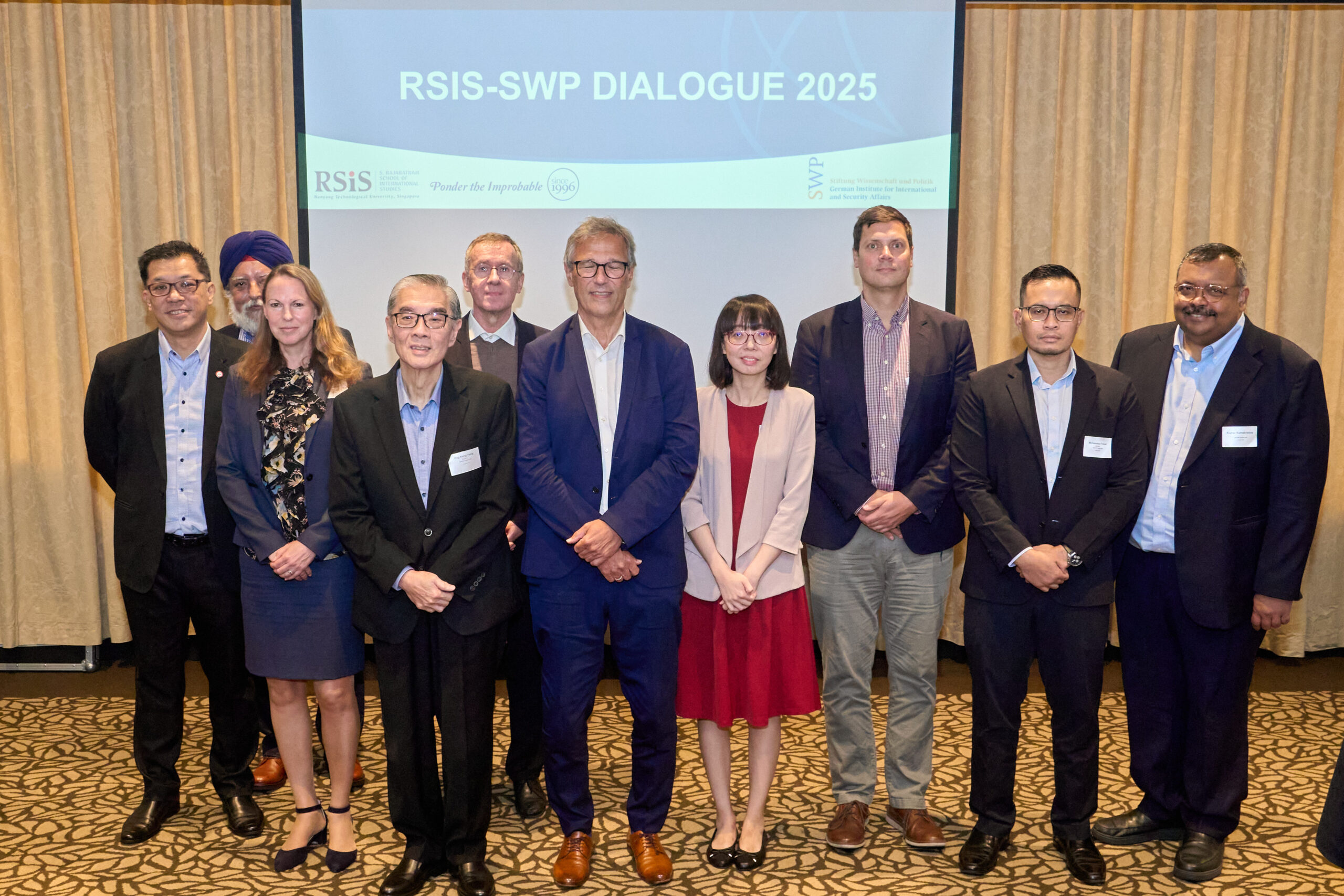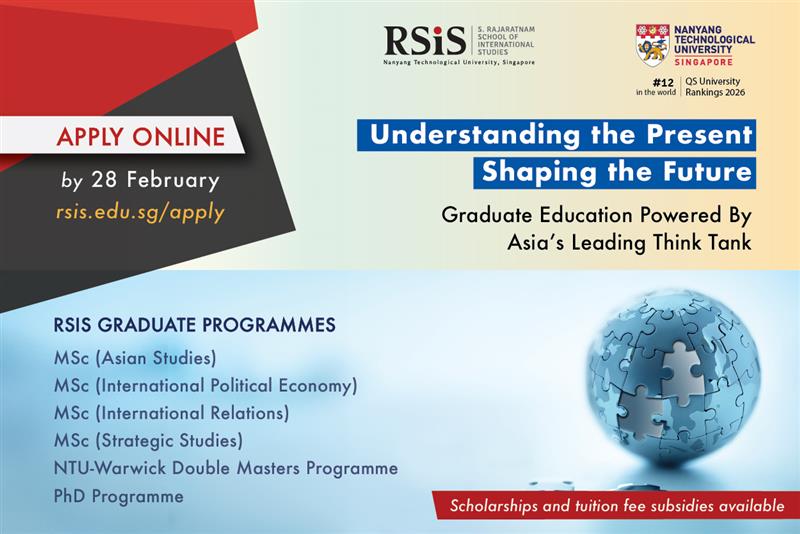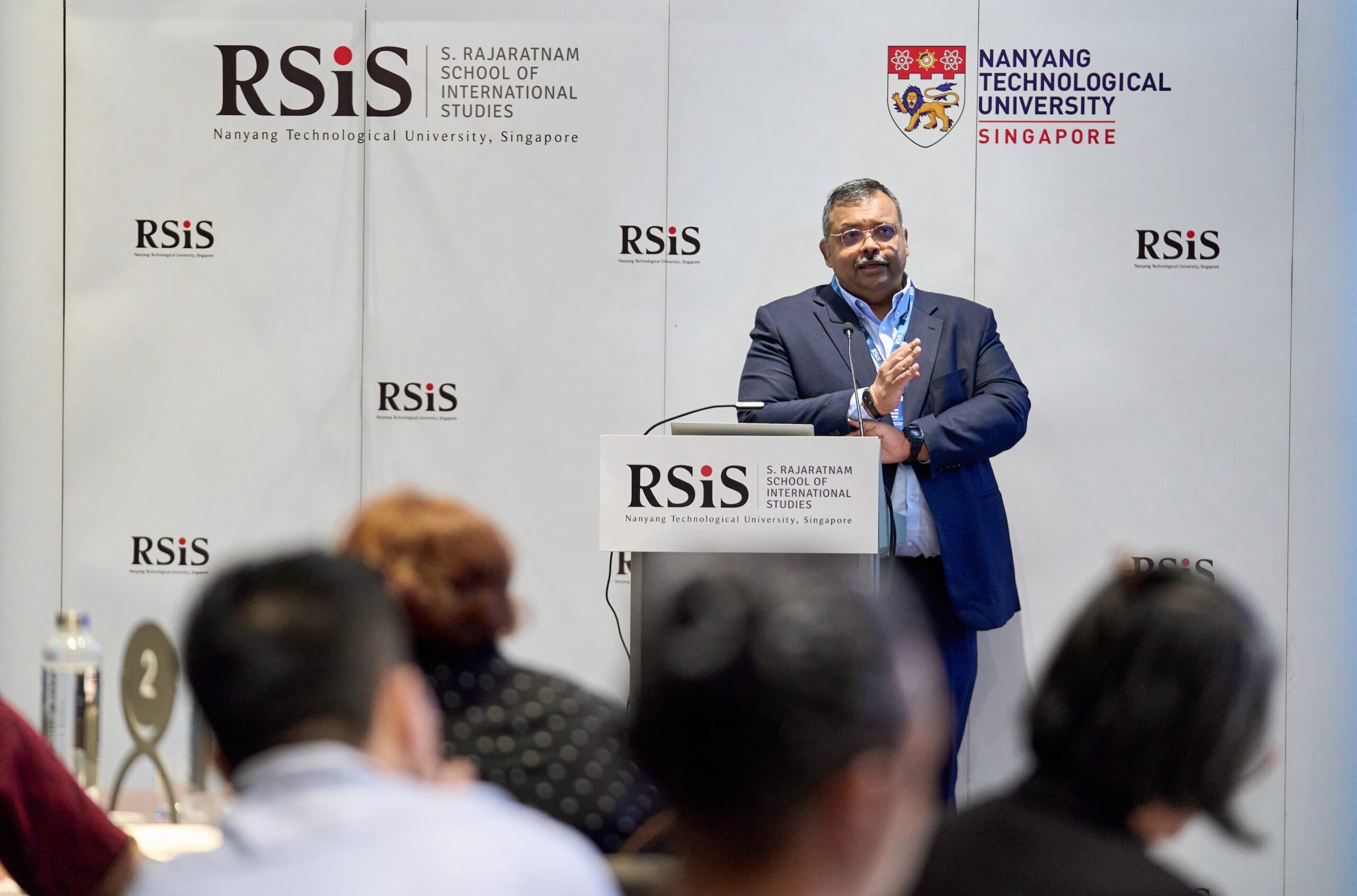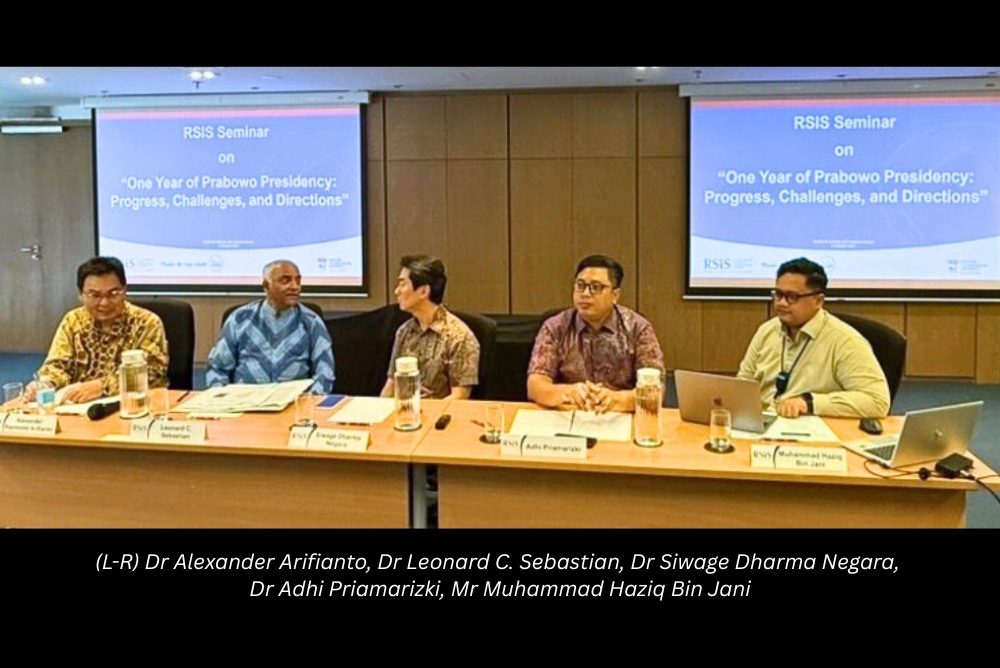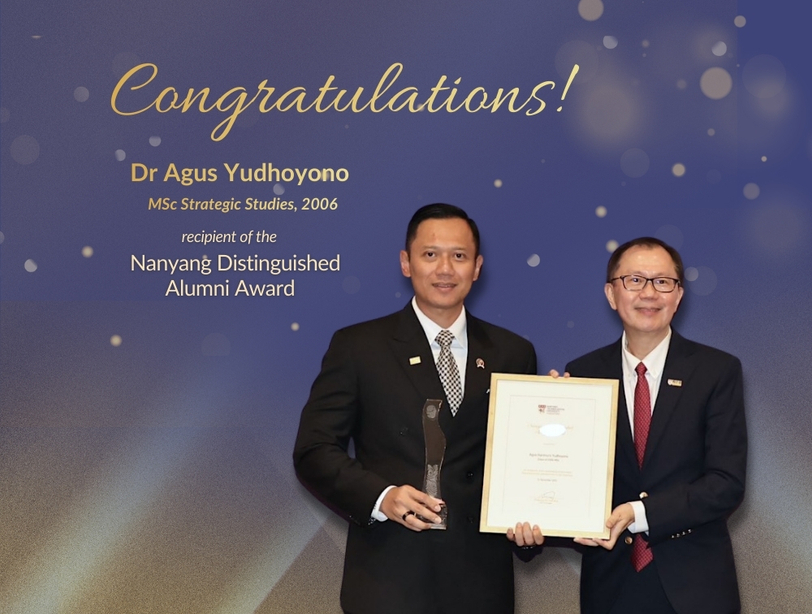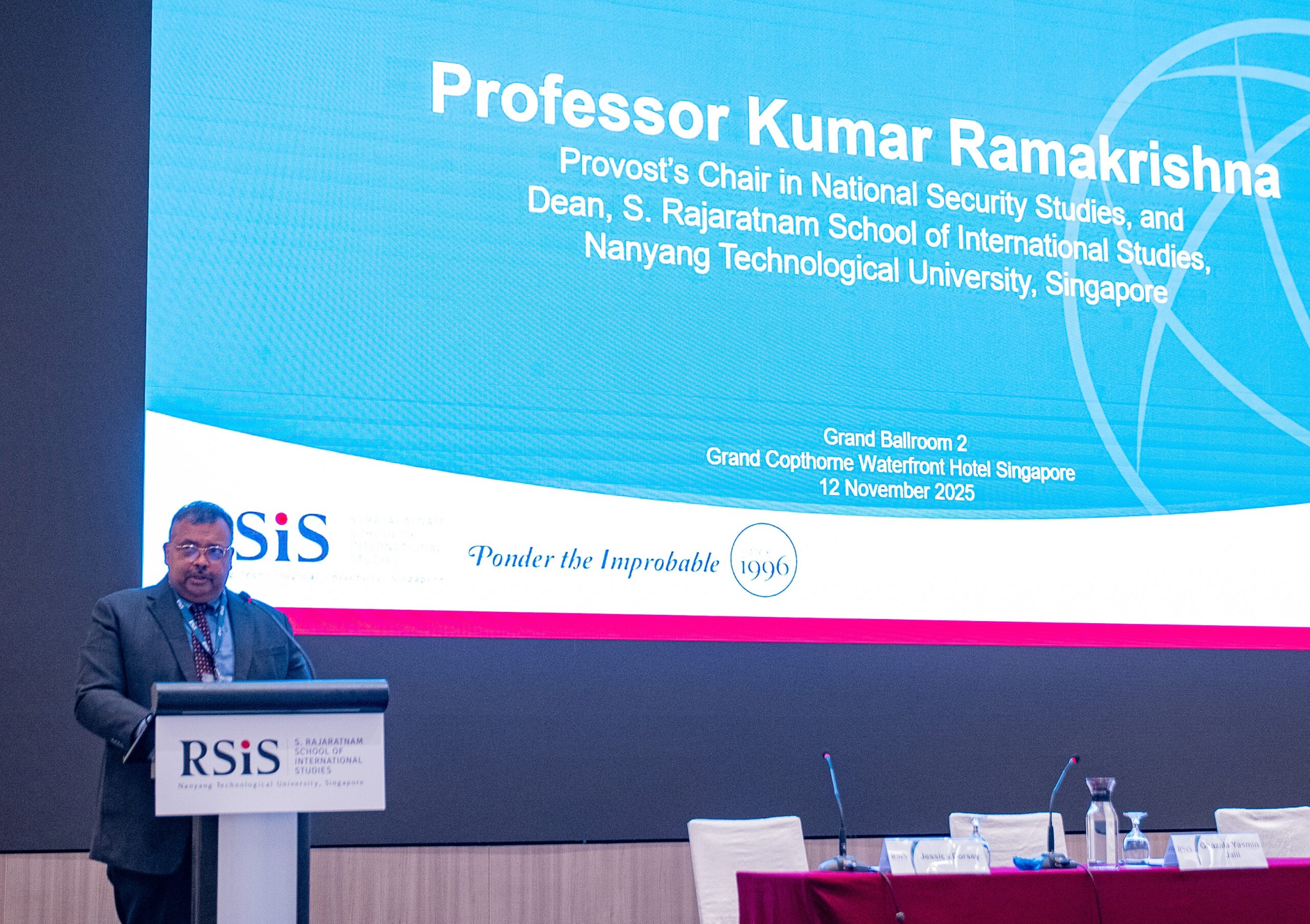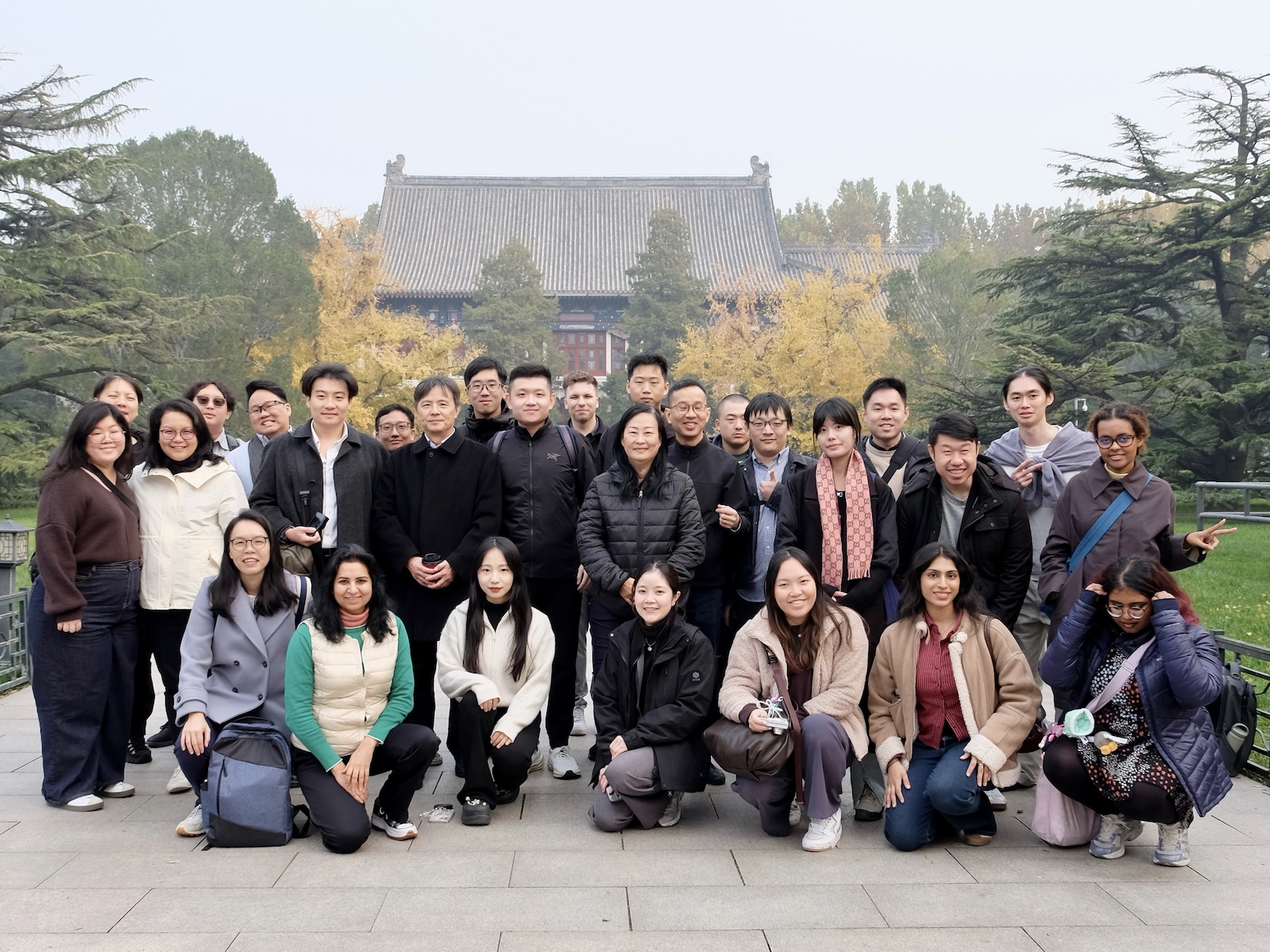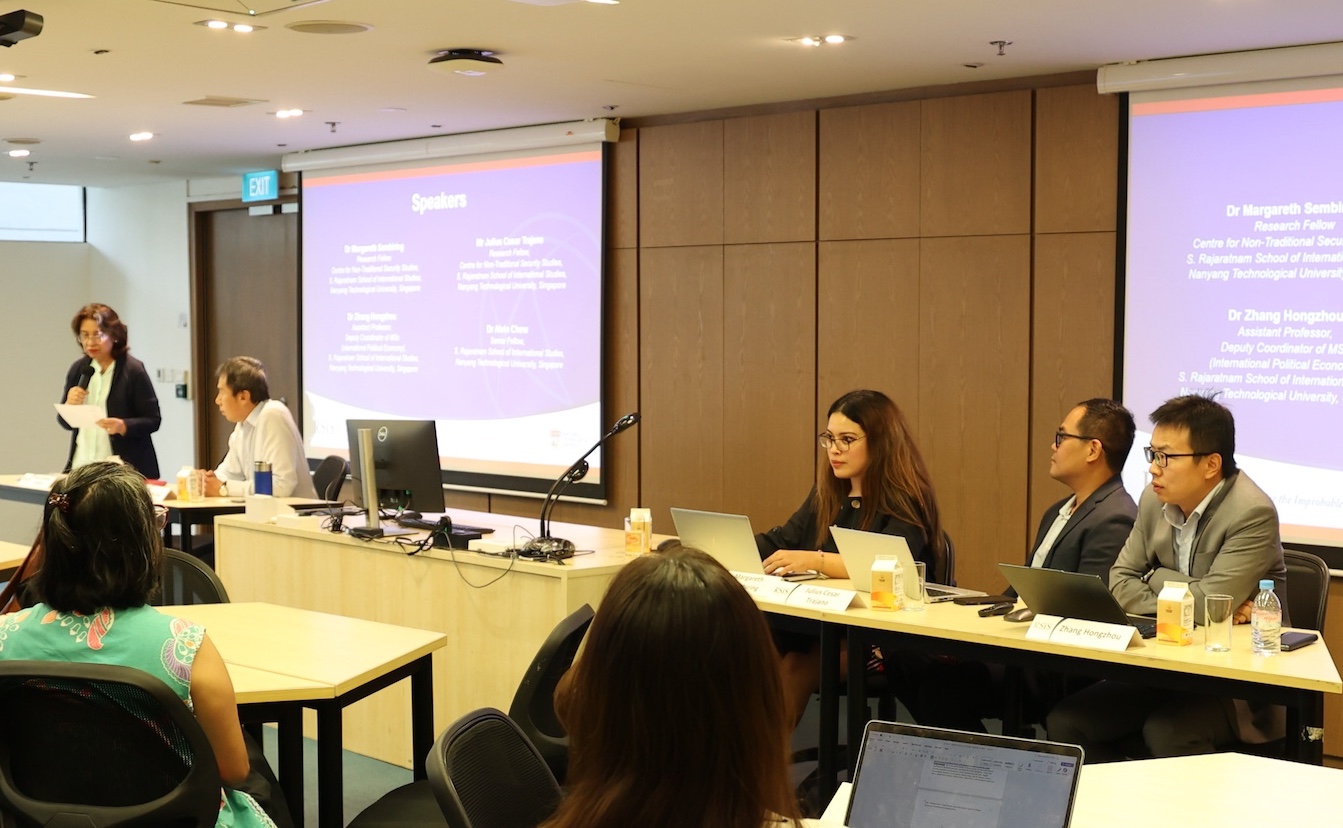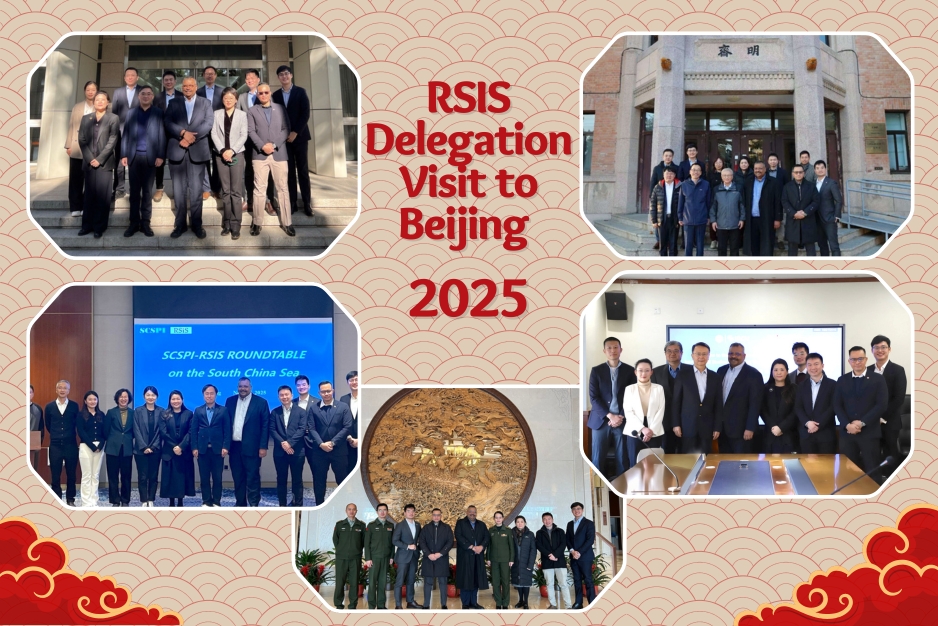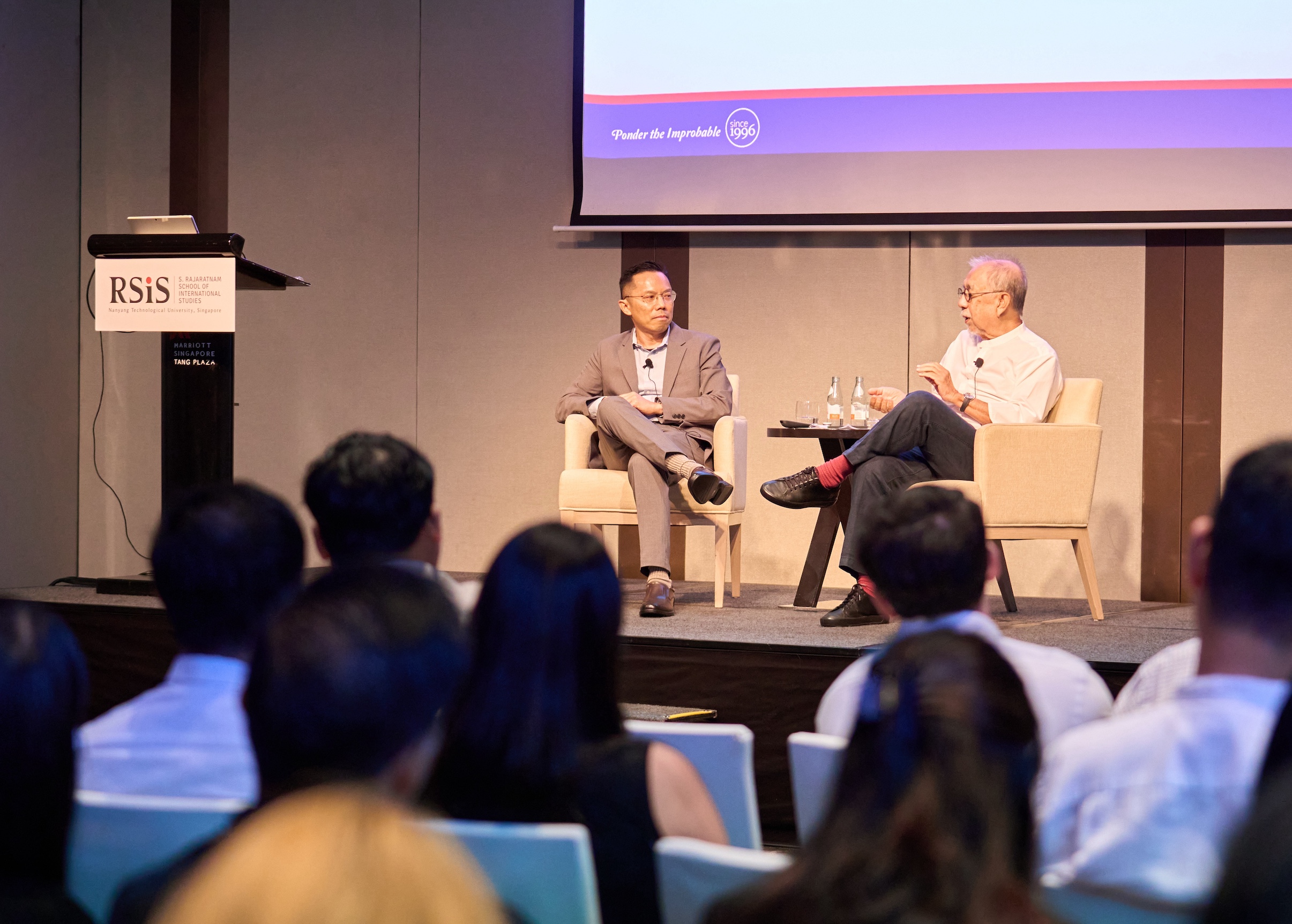
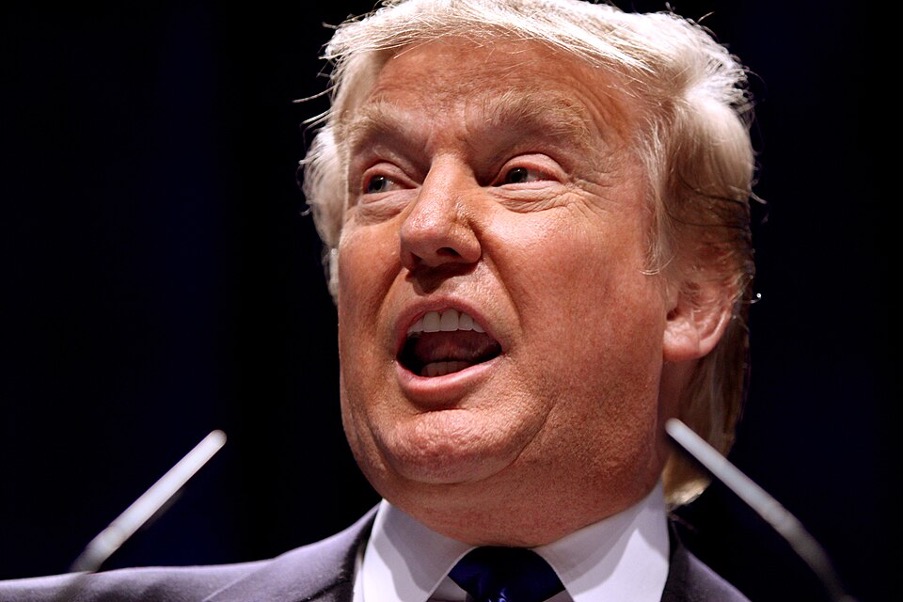
100 days into the second administration of United States President Donald Trump, the implications of his actions for US alliances and the broader security environment are already being felt. Researchers from the Institute of Defence and Strategic Studies at RSIS hosted a roundtable discussion on 6 May 2025, titled “100 Days Later – Assessing the Impact of Trump 2.0”, where they discuss this issue. Assistant Professor Gong Xue, Coordinator of the China Programme; Assistant Professor Chang Jun Yan, Head of the Military Studies Programme; Dr Collin Koh, Senior Fellow and Coordinator of Projects (Naval/Maritime Affairs); Mr Drew Thompson, Senior Fellow; and Mr Kevin Chen, Associate Research Fellow, US Programme; participated in the roundtable that was moderated by Dr Adrian Ang, Research Fellow and Coordinator of the US Programme.
The speakers agreed that United States President Donald Trump is the most influential President in recent history, though they were less certain about whether his policies will be successful. Trump returned to the White House with the bold claim that he would end the wars in Ukraine and Gaza. However, ending these conflicts has proved to be more challenging than he expected, and Washington has also yet to reveal how it plans to address security challenges such as China’s growing naval capacity. In fact, US policy towards the South China Sea is currently maintaining a holding pattern instead of breaking new ground.
Trade was an issue that several speakers touched on. While acknowledging the roots of Trump’s tariff policy in fundamental imbalances that left the US debt-laden and eroded its manufacturing base, speakers raised concerns about Trump’s erratic tariff implementation. The sheer uncertainty generated by his tariffs is more damaging than the tariffs themselves. Moreover, China is much better prepared to address tariffs as compared to Trump’s first term, having instituted policies such as import substitution and promotion of the private economy. Even as the two powers enter talks over tariffs, Beijing is expected to be wary of negotiating with Trump following the experiences of his first administration.
Even as we move past the first 100 days of Trump’s second term, speakers agreed there is still a lot of uncertainty surrounding his agenda. The results of trade talks between the US and its partners will be closely watched, though it is unlikely that his administration will conclude negotiations for 90 substantial trade deals within the 90-day reprieve on tariffs. It will also be important to monitor the responses of US partners and allies, especially in Southeast Asia, where elite opinions about the role of the US appear to be fraying.
Listen to the US Programme podcast series Engaging the Eagle, on President Trump’s first four months in office.
Read “The Asian Art of Hedging in the Time of Donald Trump” by RSIS Research Adviser Dr Tan See Seng on how Asia is adjusting to the changing role of the United States under Donald Trump’s leadership, and the region’s efforts to maintain stability and navigate shifting global dynamics. Read his op-ed here.



